Ep. 101 – Real vol 13 by Takehiko Inoue
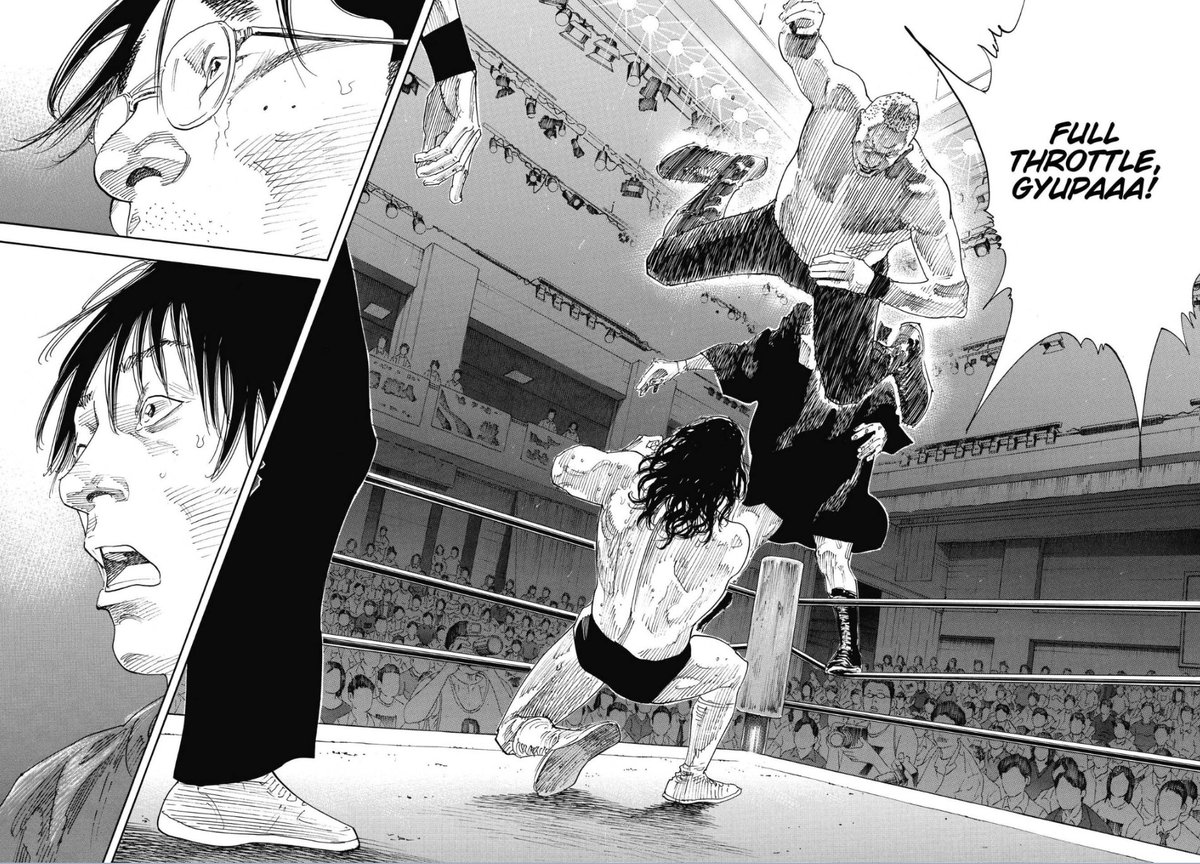
This week, we take a flying leap into the wham-bam-thank-you-ma’am world of PRO WRESTLING… by way of a basketball manga? Yep! David skips ahead to get to the good stuff with volume 13 of Real by Takehiko Inoue. Plus! A special segment celebrating 100+ episodes of Mangasplaining.
Powered by RedCircle
Listen and Subscribe to the Podcast:
Google | Apple | Stitcher | RedCircle | Amazon | Radio Public | PocketCast | Spotify
IN THIS EPISODE
00:00 Real vol. 13
38:40 THE BREAK
40:00 SHOUT-OUTS: Smokey, Skip and a long-lost interview and a Canadian film
51:00 EXTRA: The Secret Origins of Mangasplaining
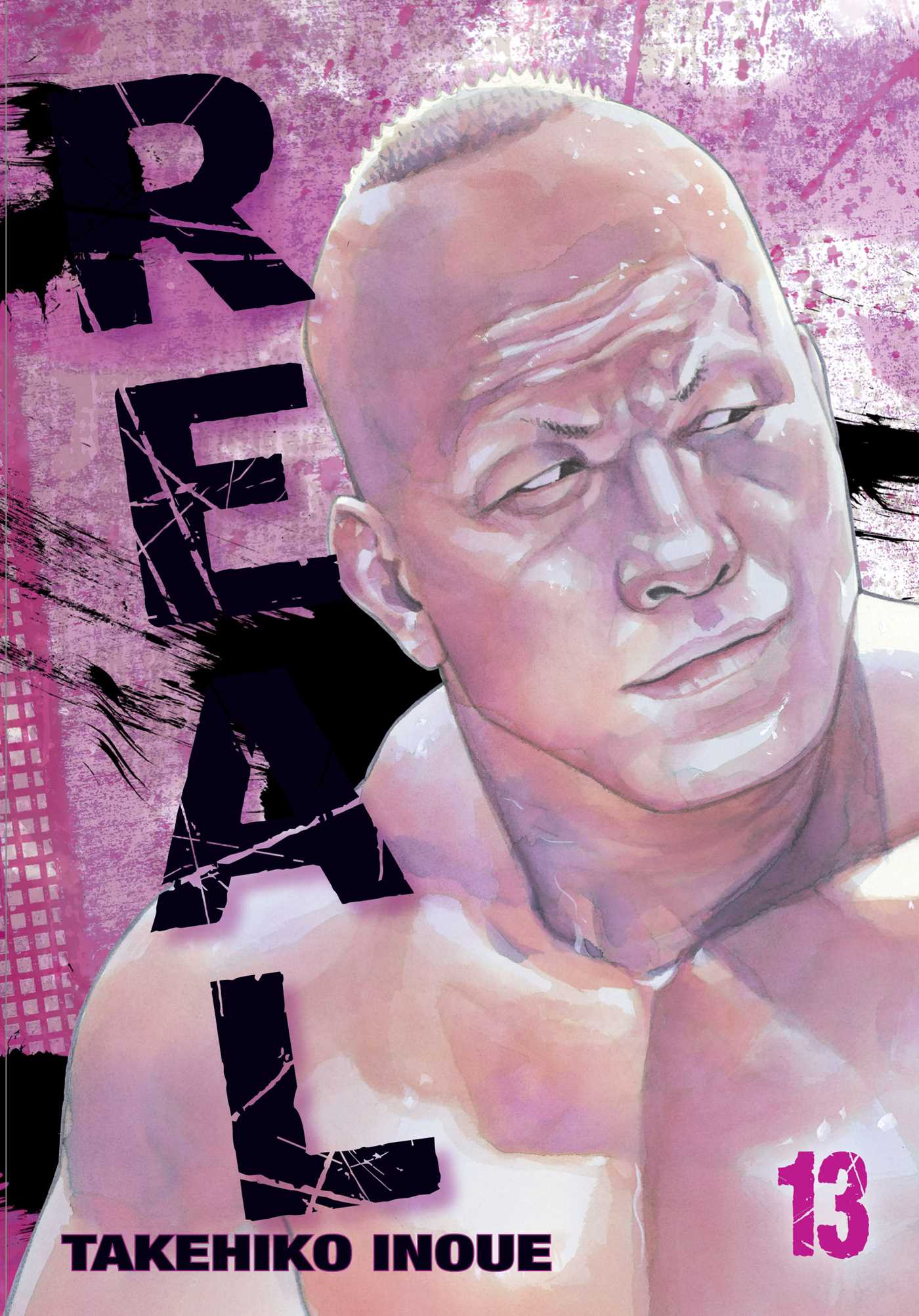
REAL vol. 13
by Takehiko Inoue
Translated by John Werry
Editor: Andy Nakatani
Touch-up and lettering by Steve Dutro
Published by VIZ Media. Available in print / digital
Audio editing by David Brothers. Show notes by Deb Aoki and Christopher Woodrow-Butcher
BEFORE WE GET STARTED
Hi all! Deb here, and I’m taking the first pass on the show notes for this episode, mostly because Christopher is busy getting our first chapters of our next MSX manga series up – Search and Destroy by Atsushi Kaneko is first up (coming Wednesday!), with new chapters published every other week, alternating with Wandering Cat’s Cage by Akane Torikai (coming next Tuesday!).
The first chapters are free for everyone to read, but if you want to read the rest and get them in your inbox weekly, you’ll need to sign up for the paid version of our Mangasplaining newsletter. It’s only $5/month or $50/year, and you’ll be helping us in our mission to get more new and fascinating manga in English out there in the world. Go on, give it a try!
[Christopher] Thanks so much for your support. These are great books, you’re going to love them. 🙂
On with the show!
ABOUT TAKEHIKO INOUE
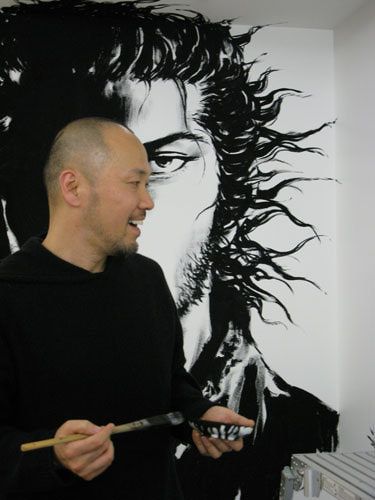
Takehiko Inoue was born in 1967 in Isa, in Kagoshima Prefecture on the southern island of Kyushu, Japan. His first claim to fame was his basketball manga series Slam Dunk, which ran in Weekly Shonen Jump from October 1990 to June 1996. Besides being one of the most popular manga series (170 million copies in print, making it the 7th best-selling manga series of all time). Slam Dunk was recognized by the Japan Basketball Association for its contributions to the growth of basketball as a sport in Japan. Inoue, along with Slam Dunk’s publisher Shueisha founded the Slam Dunk Scholarship program in 2006, that gives aspiring Japanese high school basketball players an athletic and academic scholarship to attend school in the US.
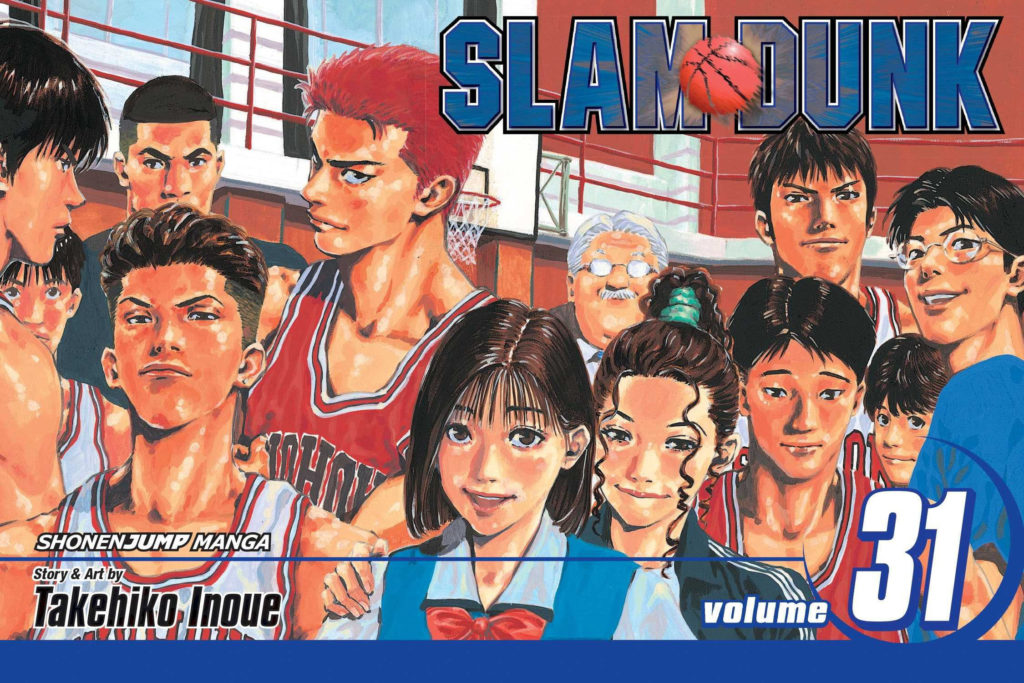
Besides Slam Dunk, Inoue has also created two other series about basketball: Buzzer Beater (which we discuss a bit in the show) and Real, the story we’re discussing today. Real has been serialized in Young Jump since 1999, with several hiatuses along the way, but at 15 volumes and counting, this manga about wheelchair basketball is still ongoing.
Inoue’s other notable series is Vagabond, an adaptation of Eiji Yoshikawa’s biography of legendary swordsman Miyamoto Musashi, the author of The Book of Five Rings. This series has been running in Kodansha’s Morning magazine since 1998, but has been on hiatus since 2015.
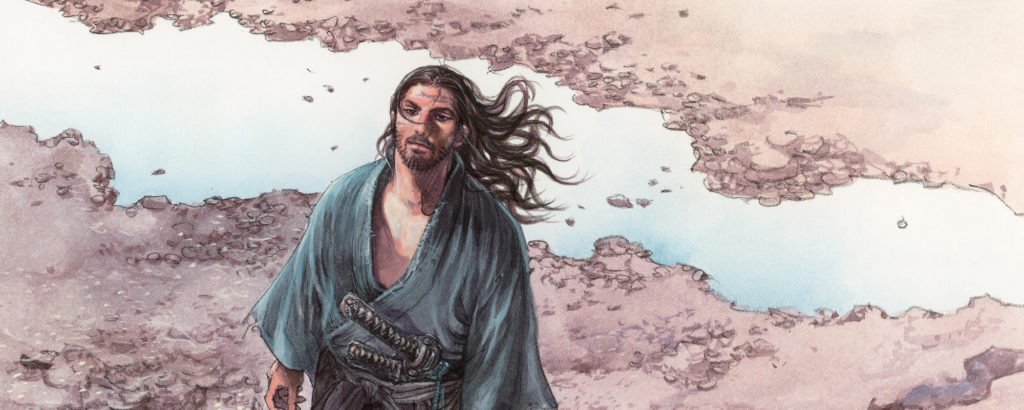
[Christopher] Inoue is a tremendously versatile cartoonist, having worked for numerous advertising and marketing campaigns, as well as dipping into the fine art world. Here’s an advertisement for Japanese mega cosmetics brand Shisedo, featuring Inoue.
And here’s a documentary shot during an exhibition of his manga artwork, which also includes some incredible live painting by Inoue. It’s over an hour and a half, check it out after this episode. 😉
Inoue has been busy with numerous other pursuits in the meantime. Besides writing and directing The First Slam Dunk Movie (which is now one of the top 10 highest grossing movies in Japan), he has done other projects including an illustrated biography / travelog of visiting Barcelona to see the creations of architect Antonio Gaudi. This book, Pepita, and the two art books Sumi and Water were published by VIZ Media (though it looks like Sumi and Water are out of print). He has created illustrations for the 2020 Tokyo Special Olympics, and has had exhibits of his artwork at various museums in Japan.
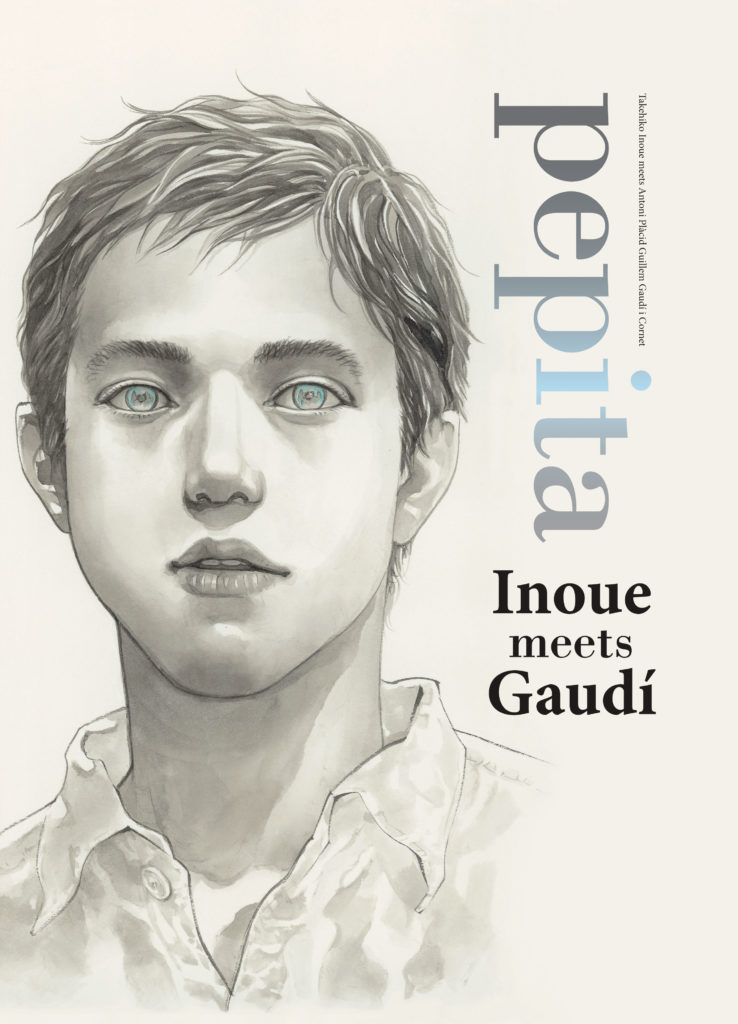
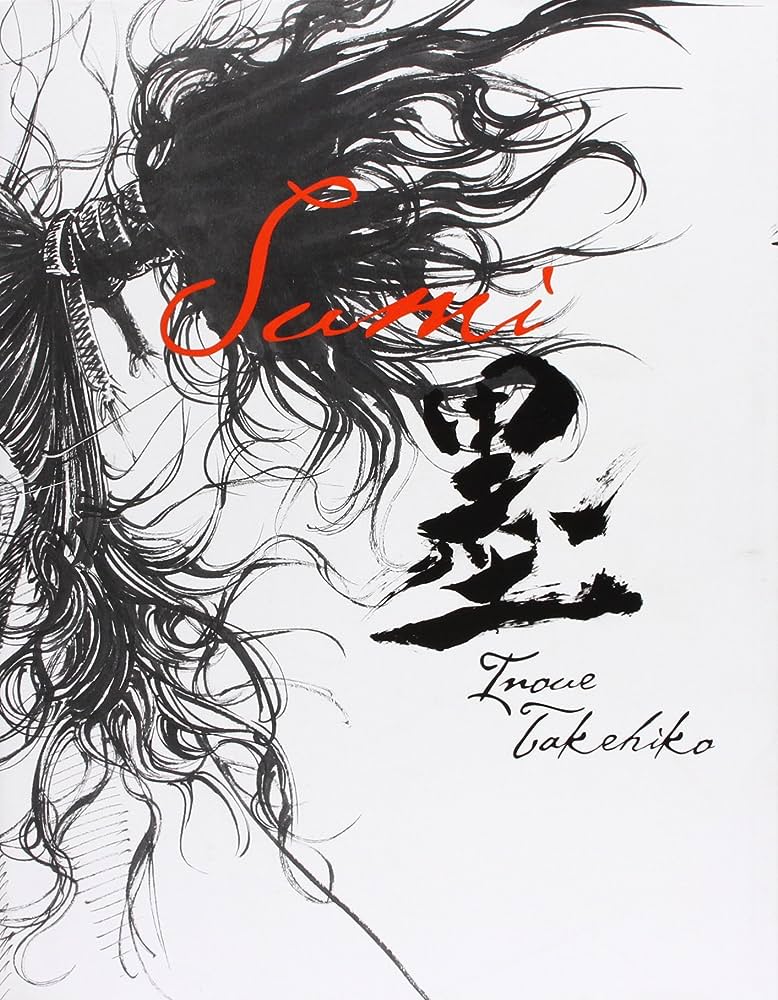
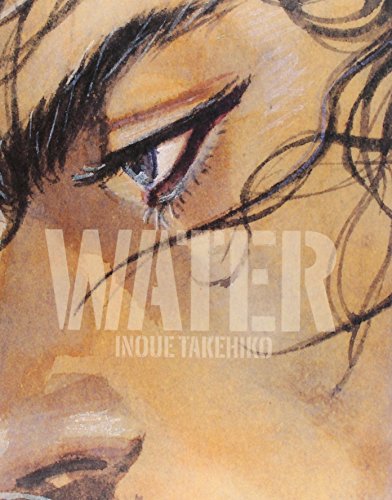
Needless to say, Takehiko Inoue has won numerous awards for his work in Japan, including an Excellence Prize from the Japan Media Arts Festival in 2001 for Vagabond. Vagabond was also awarded the Kodansha Manga Award in 2000 and the Osamu Tezuka Cultural Prize in 2002 alongside Berserk by Kentaro Miura.
If you’re in the New York City area, drop by the Bryant Park branch of the Kinokuniya Bookstore and see the Vagabond mural painted on site by Inoue (we talk a bit more about that later in this episode).
You can find Takehiko Inoue online at https://itplanning.co.jp/en/.
ABOUT REAL VOL. 13
Here’s the description from the book:
Pro wrestling super heel of all time Scorpion Shiratori is determined to make a comeback, despite the fact that he doesn’t have the full use of his legs. Takahashi’s in the crowd and can barely watch. But will witnessing Shiratori attempt the impossible open up something new within Takahashi?
VIZ Media
01:19 Slam Dunk is the manga that put Takehiko Inoue on the map as the creator of one of the all-time best sports manga series ever created. The entire 31 volume series is available from VIZ Media, but alas, only in print (no digital version yet).
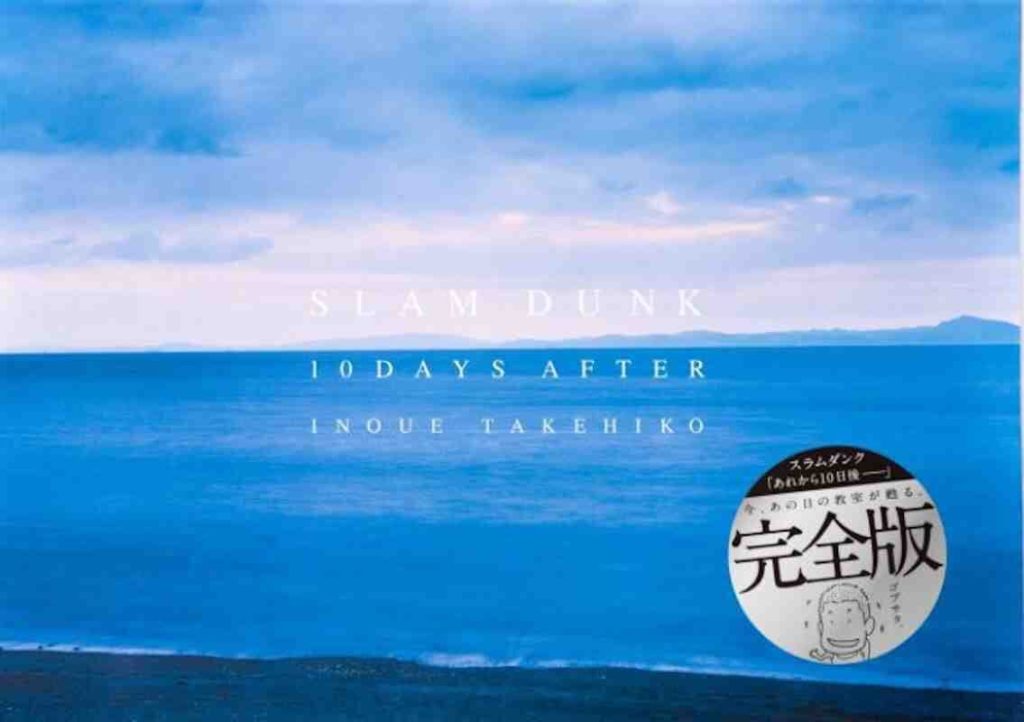
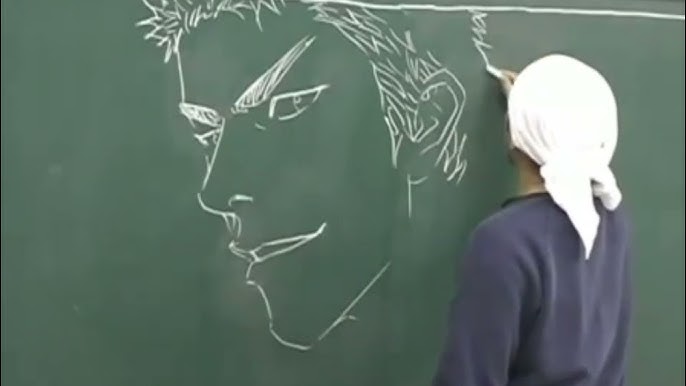
One of the neatest things I’ve ever seen is how Inoue drew a sequel chapter to Slam Dunk entirely by drawing with chalk on blackboards in several classrooms in a school. The entire story is documented in photos in Slam Dunk: 10 Days After, an oversized artbook that’s only available in Japanese (for the most part), but you can get it from Kinokuniya or other Japanese bookstores.
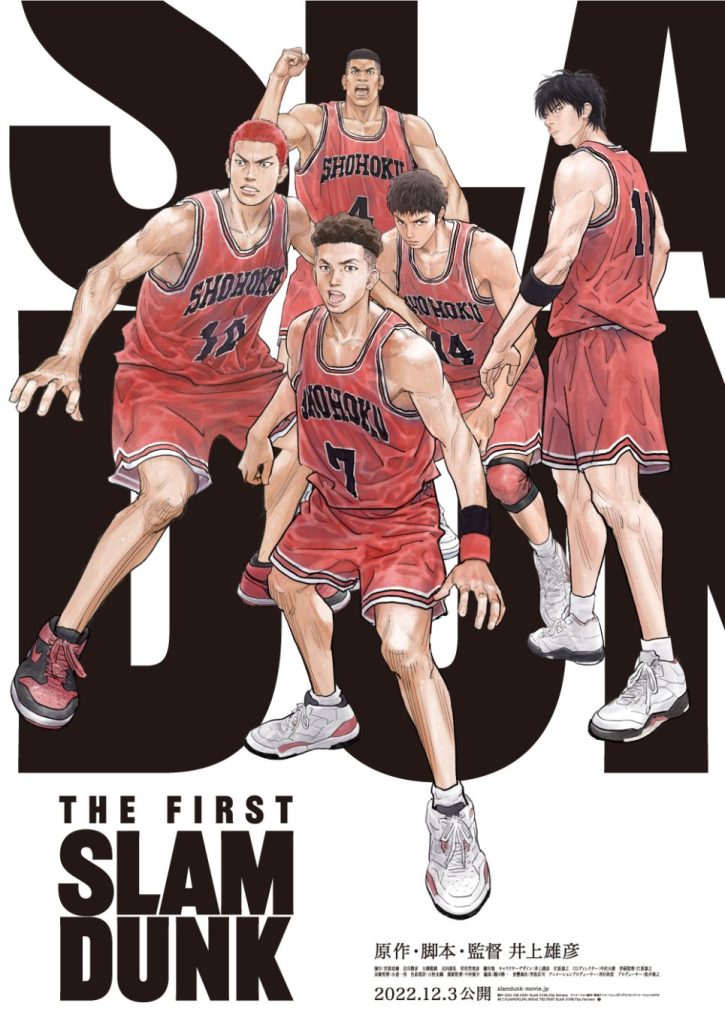
Also, that Slam Dunk movie? It’s f**king incredible. Go see it in a theater if you can. It’s just beautiful. Even if you’ve read the manga, the movie is a different take on the key match between high school basketball powerhouses, Shohoku and Sannoh Kogyo in that it focuses on the backstory of point guard Ryota Miyagi more than the redheaded, former delinquent Hanamichi, who was more of the focus on the manga series. It’s still true to the events in the manga series, but frames it in a fresh new way. Even if you’ve never read the manga, go see this movie. You won’t regret it.
When David says Inoue created his own personal manga company, he’s referring to “I.T. Planning,” which is Inoue’s creative / production company. This is like similar business entities formed by other manga creators, such as Mizuki Pro for Shigeru Mizuki (GeGeGe no Kitaro), MASHROOM for Katsuhiro Otomo (AKIRA) and Tezuka Pro for Osamu Tezuka (Astro Boy).
You can visit the I.T. Planning website to get the latest news and see sketches by Inoue.
Besides Slam Dunk and Real, Inoue also created another basketball manga series, the full-color series that David mentions here, Buzzer Beater. It launched on May 1996 on the Sports-i ESPN website and is about a basketball team from Earth that attempts to compete on the intergalactic level, kind of like Space Jam, but minus Bugs Bunny, so probably slightly less silly, although compared to Vagabond, it doesn’t exactly take itself terribly seriously.
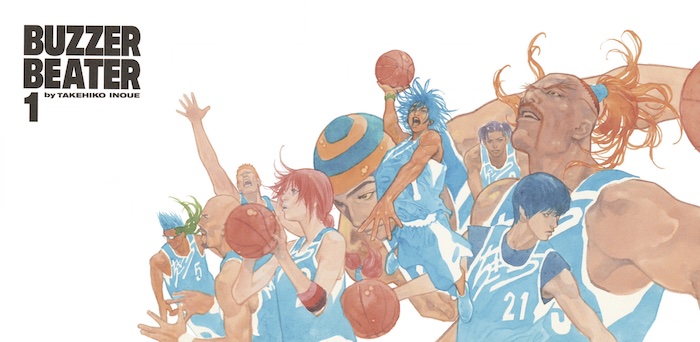
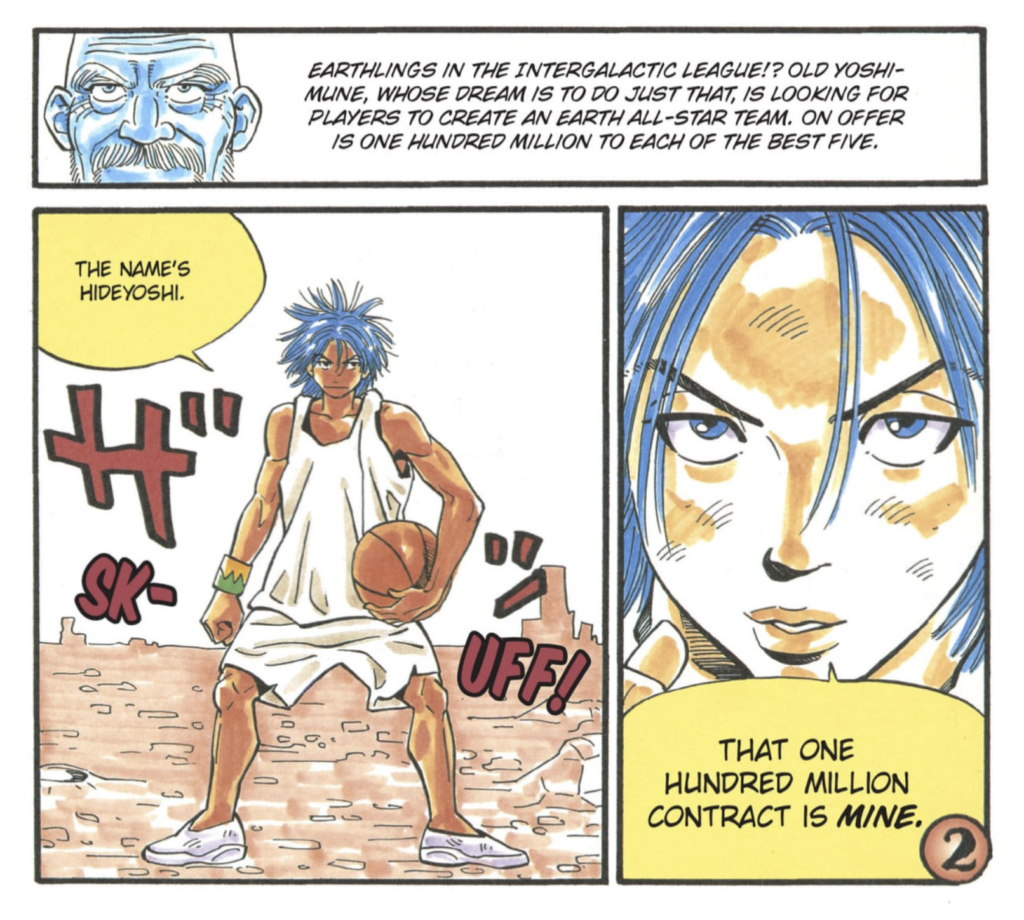
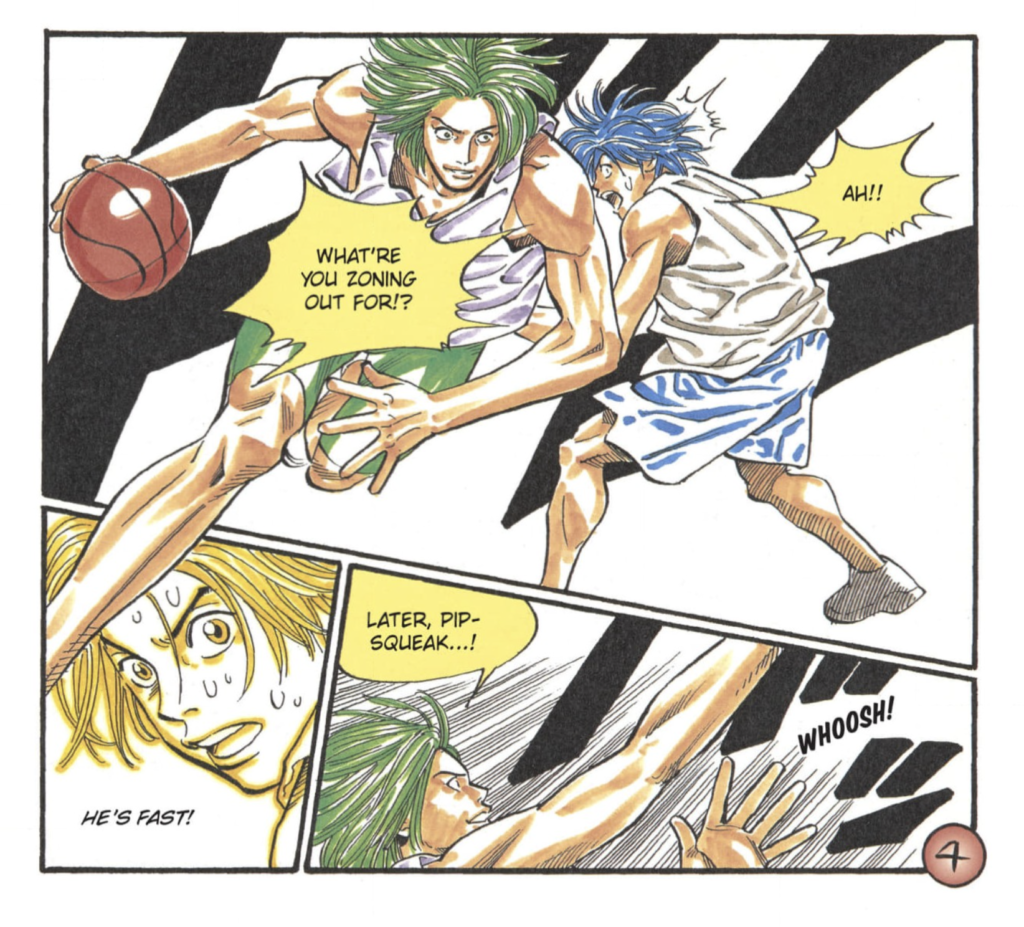
Anyway, Buzzer Beater was produced into a 13 episode anime series in 2005. Anime News Network has more details on that. I’m not sure if it’s available to watch legally online now tho, but feel free to correct me in the comments if you know otherwise.
As for the manga, it’s not available in print in English, but Manga Planet has it online, so you can read Buzzer Beater there.
03:00 [Christopher] I love that Deb groaned when David made the American comics reference.
03:04 The other series that Takehiko Inoue has been working on in recent years is Vagabond, which is a retelling of the life of legendary swordsman Miyamoto Musashi. VIZ Media has been publishing this in English, in both single volumes and their VIZ Big omnibus editions. They are gorgeous. Go check them out.
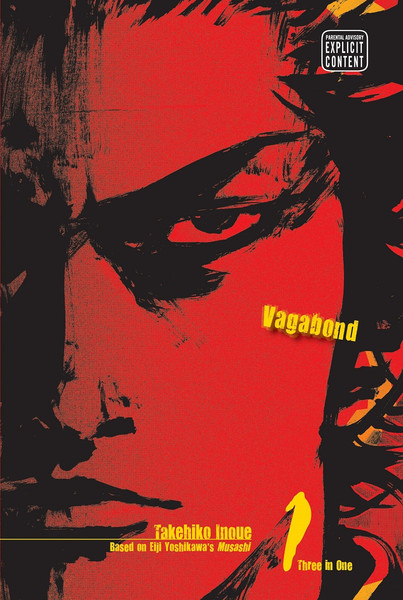
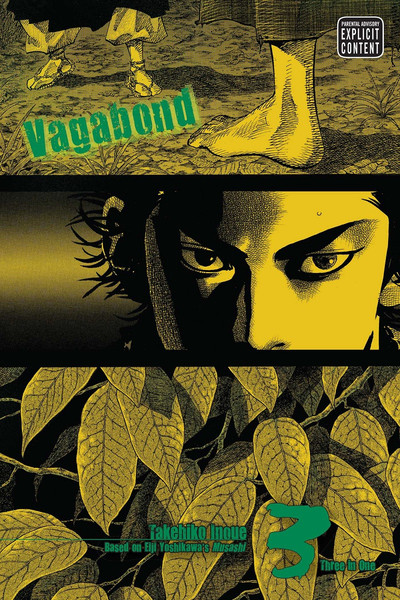
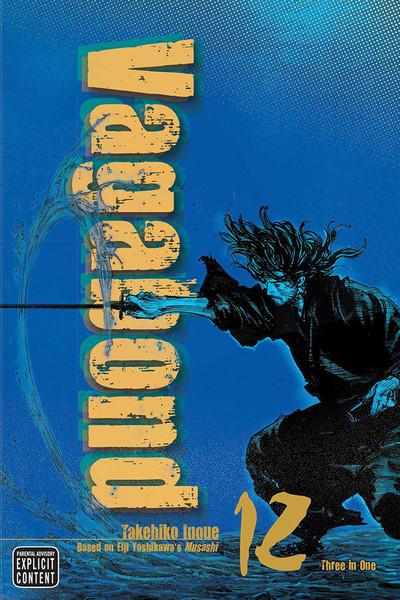
06:30 “When you can see people struggling to stand up with only their arms, you can feel them struggling to carry that weight. When you see someone hitting their face on the mat, you can feel it – it doesn’t feel fake. It has real body mass and humanity to it.”
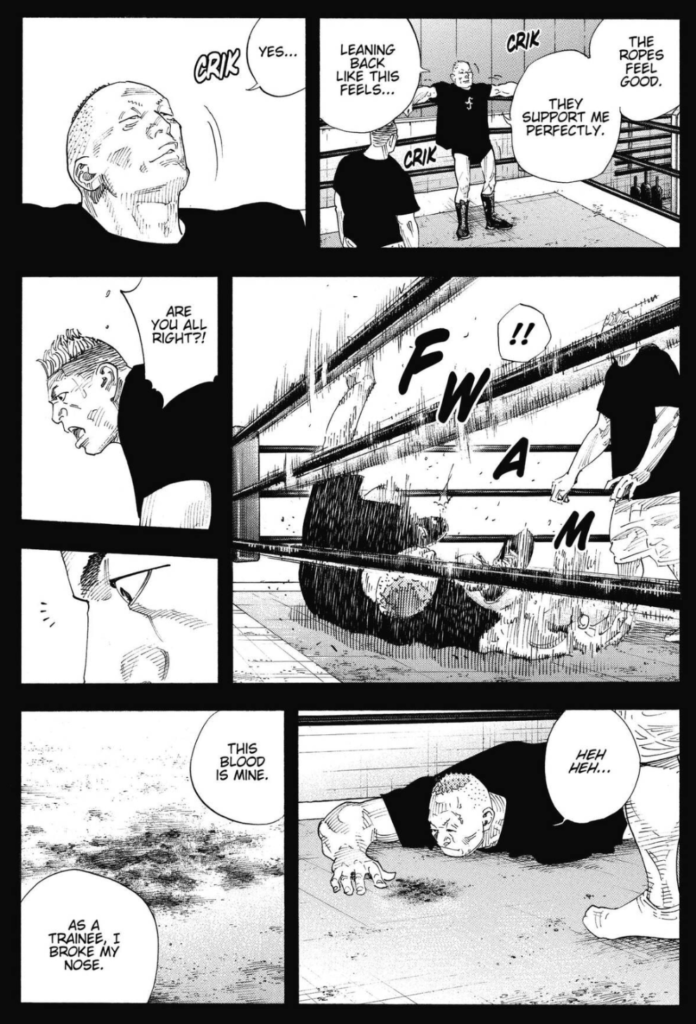
10:13 The first two volumes of Real focus more on three young men, both who are new to dealing with disabilities that leave them wondering if they can ever return to their lives and identities as athletes. Nomiya Tomomi is a high school dropout who has dreams of being a pro basketball player. Togawa Kiyoharu is a former sprinter who loses one of his legs to cancer, and Takahashi Hisanobu, who is featured in this volume of Real, is a former hot-shot high school basketball player who loses use of his legs due to an auto accident.
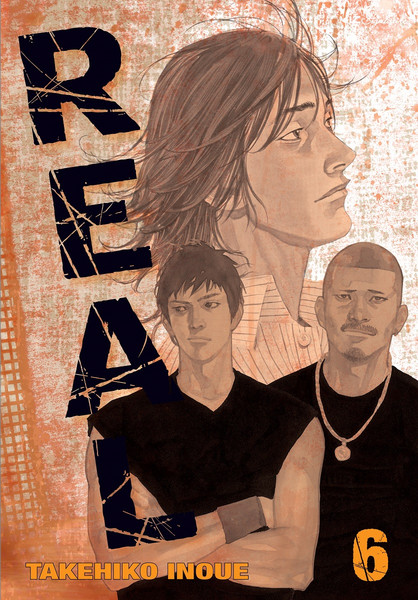
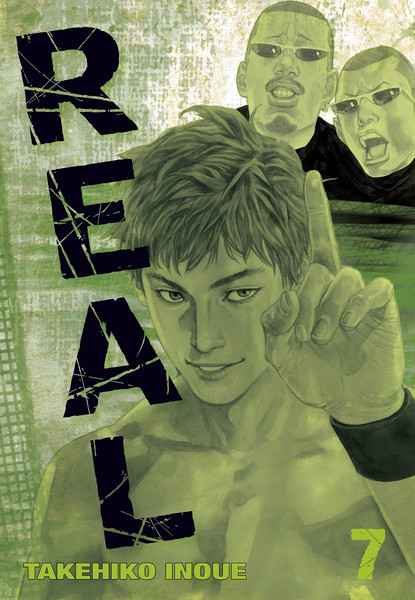
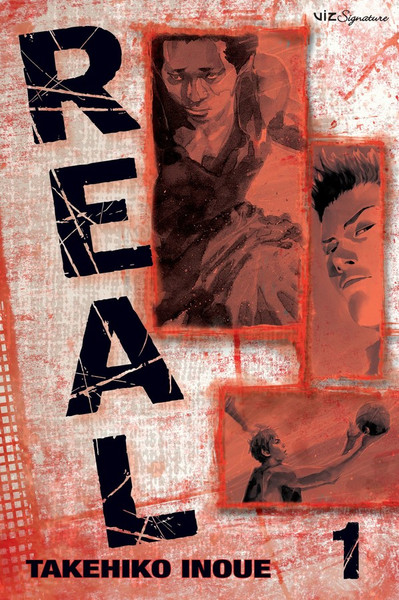
In the volumes leading up to Real Volume 13, starting from Volume 8, we see Takahashi at a rehab facility, where his fellow patients are Scorpion Shiratori and the bespectacled Hanasaki. As the story opens, Hanasaki and Takashashi are in the audience as Shiratori makes his much-hyped return to the ring, as he tries to hide from his fans that he has largely lost the use of his legs due to a motor bike/auto accident.
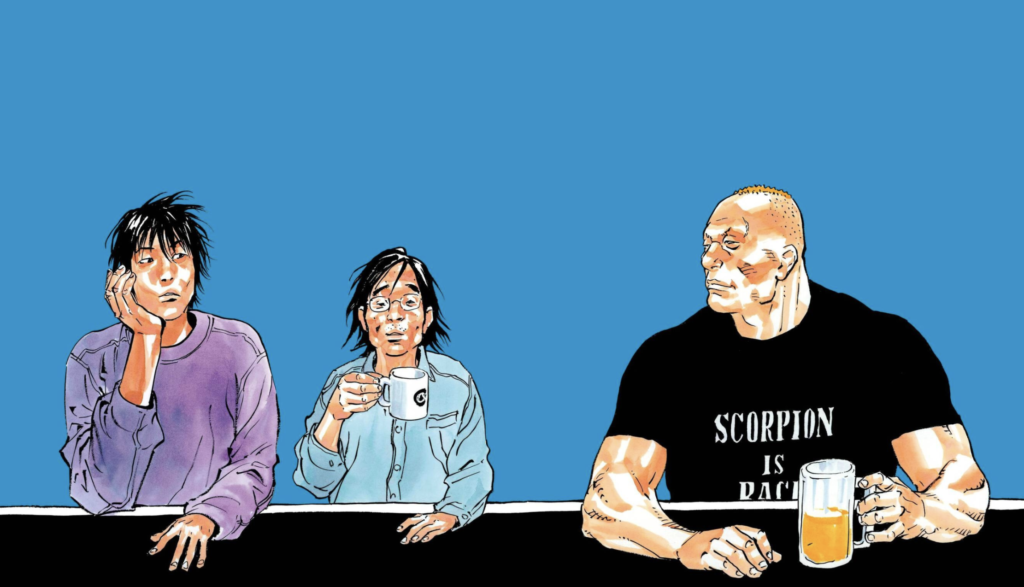
12:06 Here’s a bit of the “pageantry of wrestling” that Chip describes – his “tongue out” scene in the ring.
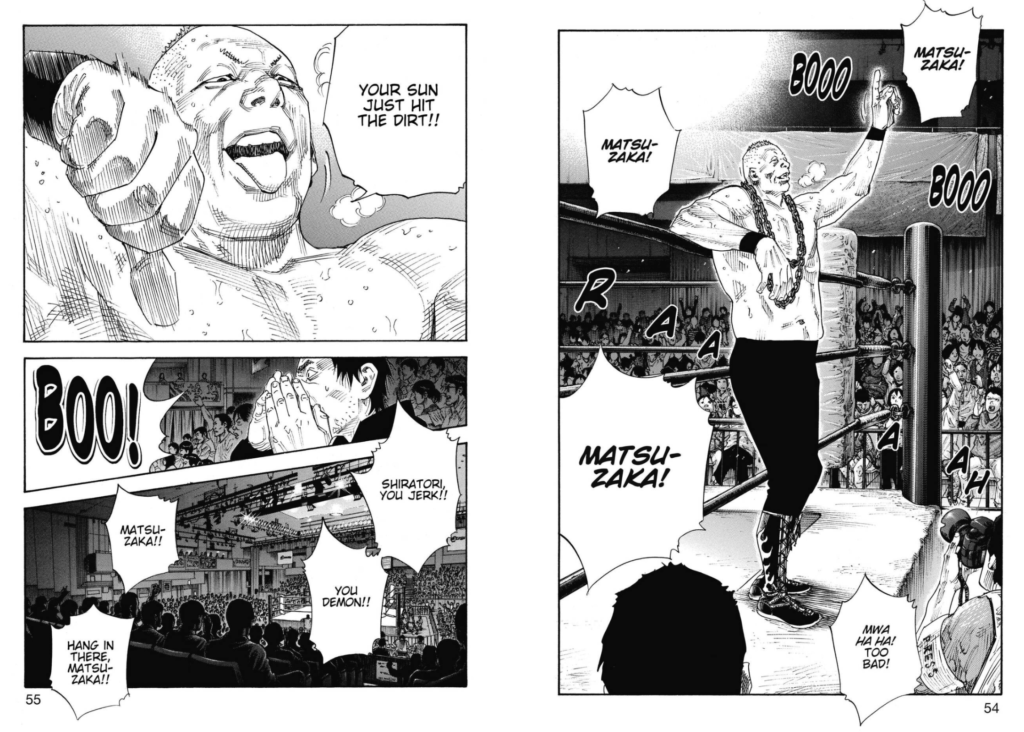
12:33 Also, here’s some of the cross hatching that Chip bounces off on…
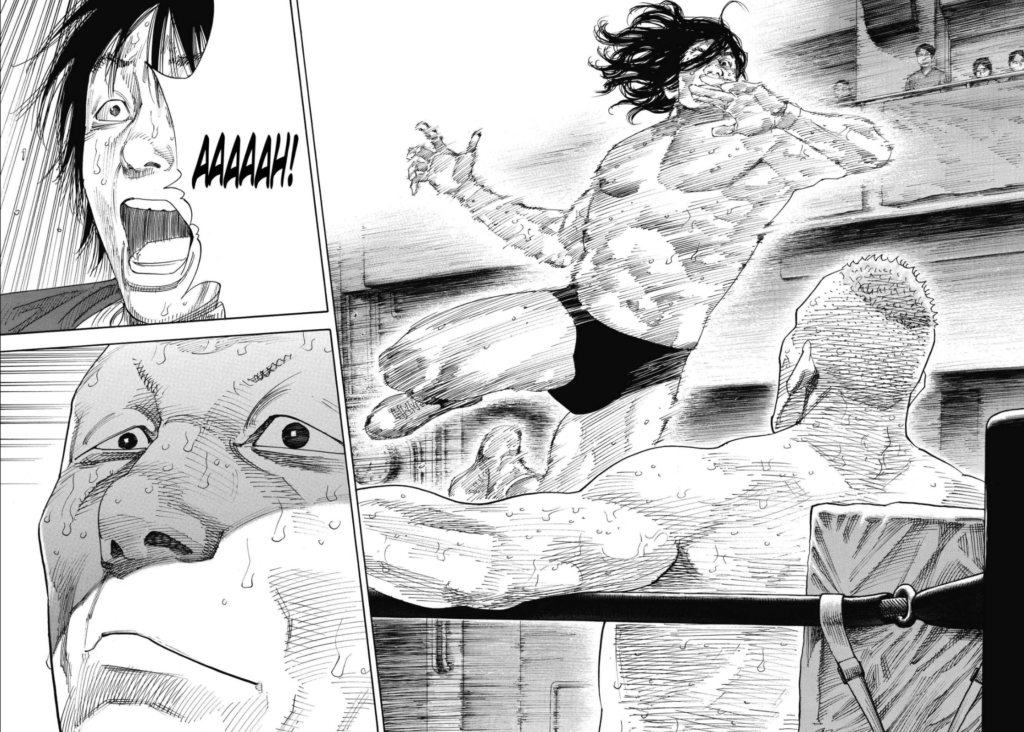
13:30 The contrast between the younger Shiratori and his current self, described by Chip as his “old man face with the spikey young guy hair” is mostly referring to these flashback scenes.
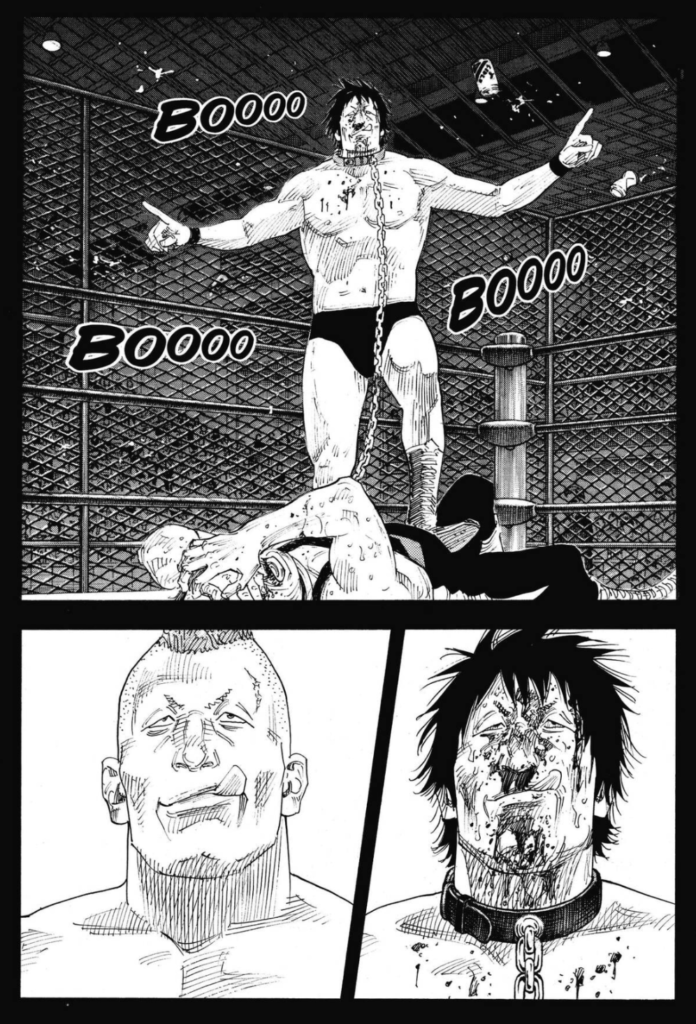
15:00 [Christopher] Deb references some of the sketches by Inoue that are used on the between-chapter segments, usually when an extra page is needed to maintain pagination. They’re really great though, getting to see Inoue’s pencil sketches as compared to his finished ink work, so we’ll show you one here and one a bit later.
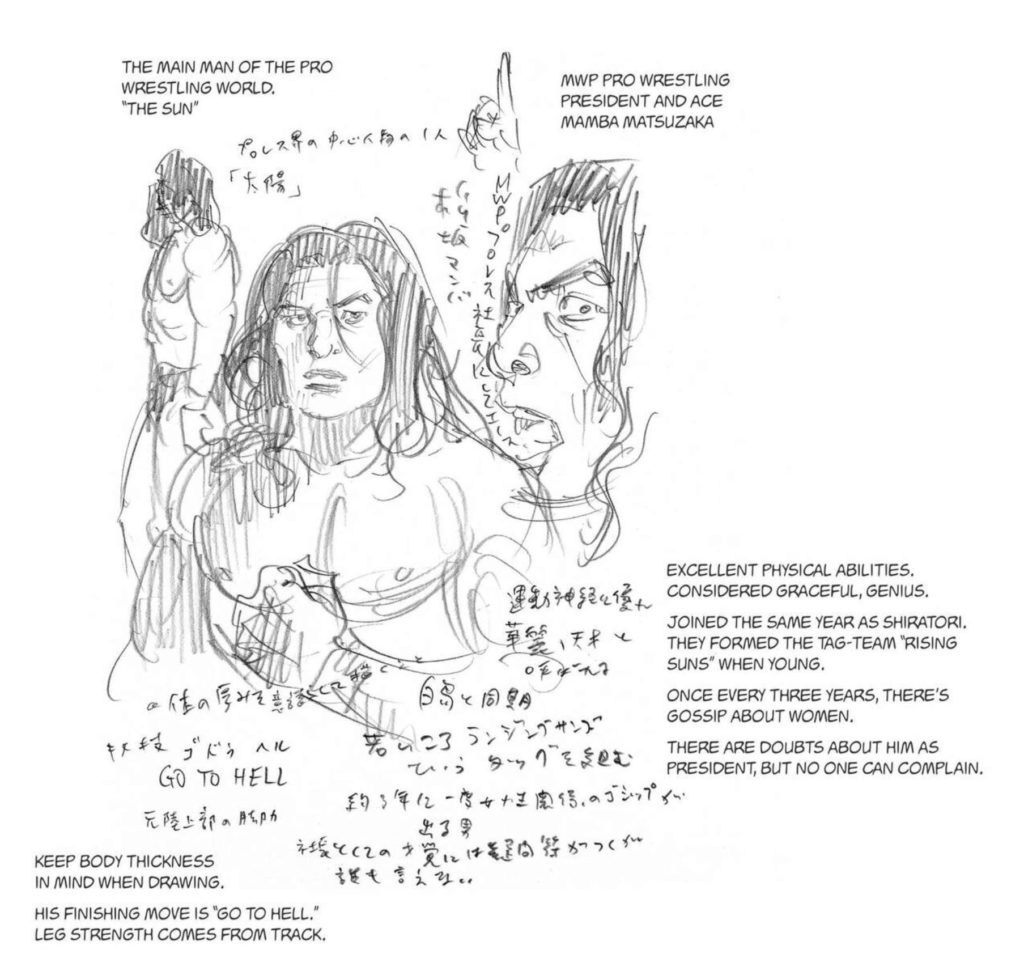
16:20 The scenes from page 188, where Takahashi is in a jar, symbolizing how he shuts himself away from other people, emotionally, and pages 194-195, when the wrestling match brings Takahashi to an emotional breakthrough, and his inner boy finding himself out of the jar, and his outer self left in tears at the ringside. It’s a lovely and effective visual metaphor for this character.
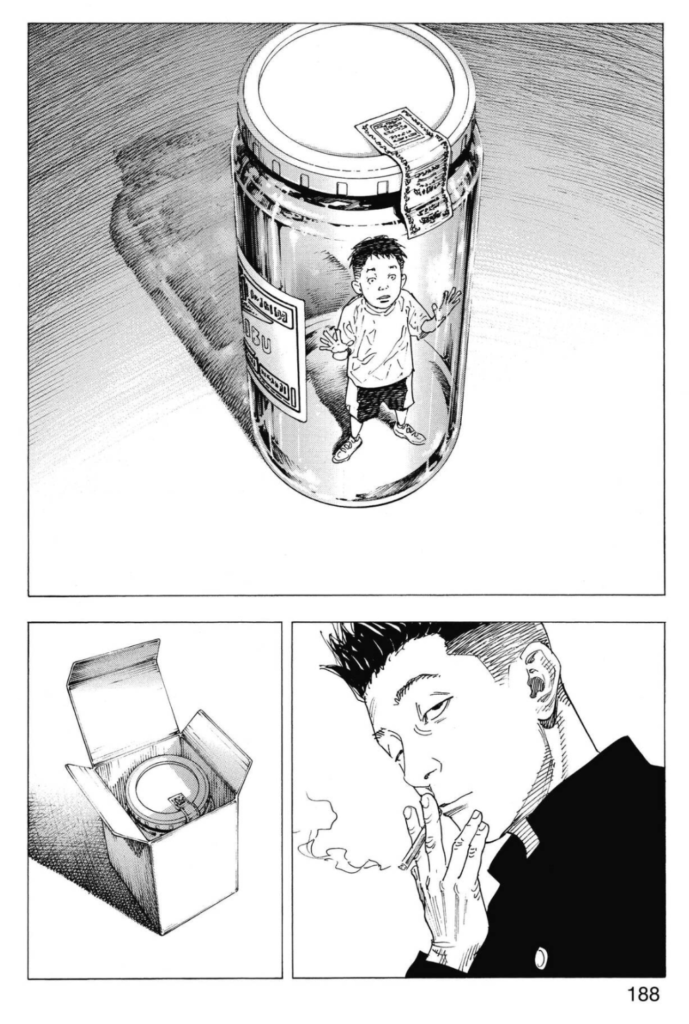
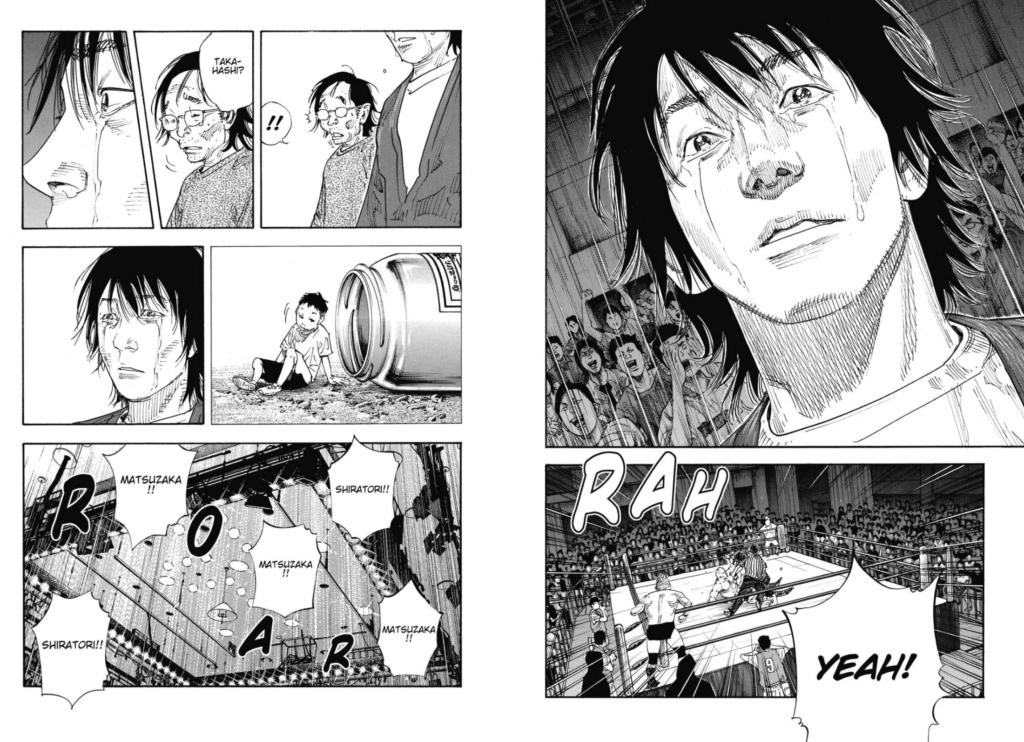
18:32 The delays that David are referring to are about the numerous, months-long hiatuses that Real has been on for a while, partly because Inoue was so focused on producing the The First Slam Dunk feature movie.
And sure enough, now that the movie has been a huge success in Japan, and is being released in theaters overseas, new chapters of Real have resumed in Young Jump as of the August 2023 issue.
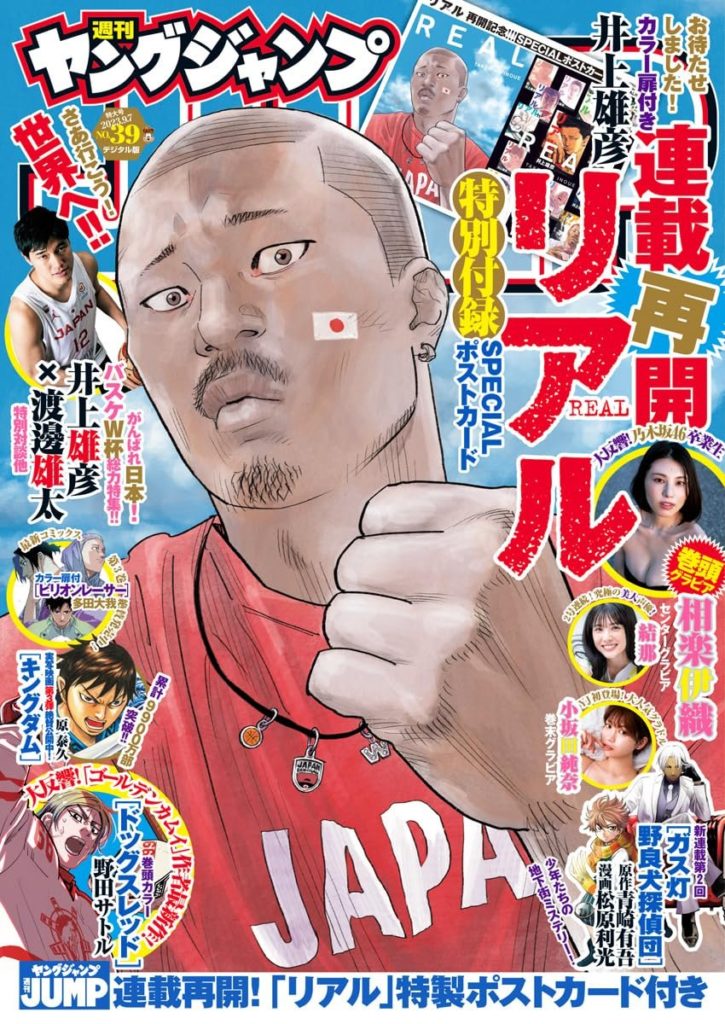
22:00 [Christopher] Lotta truck damage in this medium. We talked about it in the isekai episode, My Next Life as a Villainess…, as well as in our episode on AJIN: Demi-Human. Getting hit by a truck is a real thing in manga… if not in Japan itself.
23:23 Korakuen Hall is the setting for this wrestling match, and it’s a real place, where real boxing and wrestling matches take place. David has spent many an evening in this hallowed ground for Japanese pro fighting matches, and as we speak, he’s planning his next trip to do more of the same. If you’d like to visit Korakuen Hall, here’s the details about this Tokyo Dome-adjacent arena.
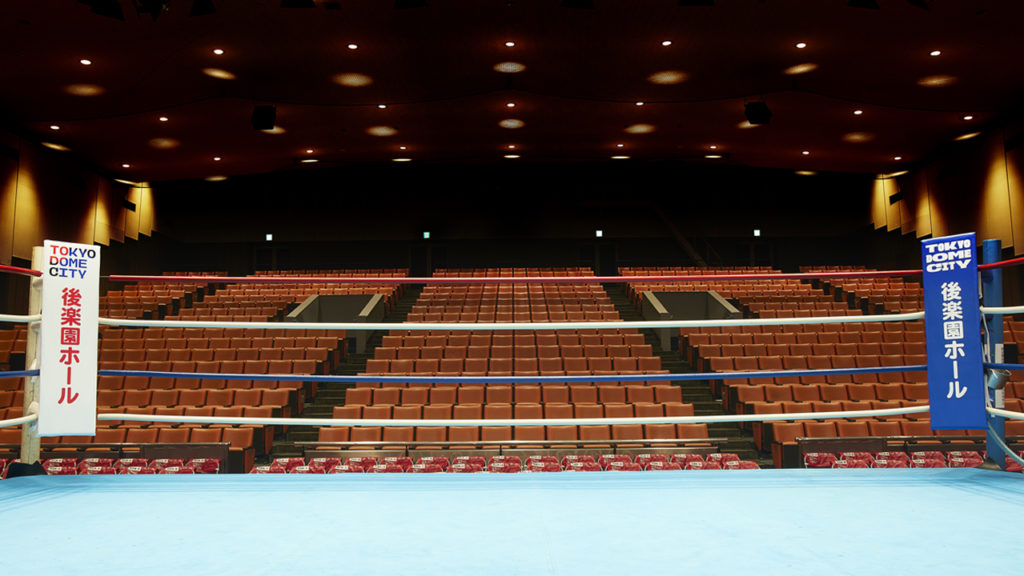
24:02 Okay, whut? YouTube videos of pro wrestlers fighting with a blow-up doll named Yoshihiko? Sure enough, this does exist. Here’s one I found, though I’m sure David has favorites that are better…
25:43 The moment when the “letter-writing guy” “Broom” is revealed to be Hanasaki:
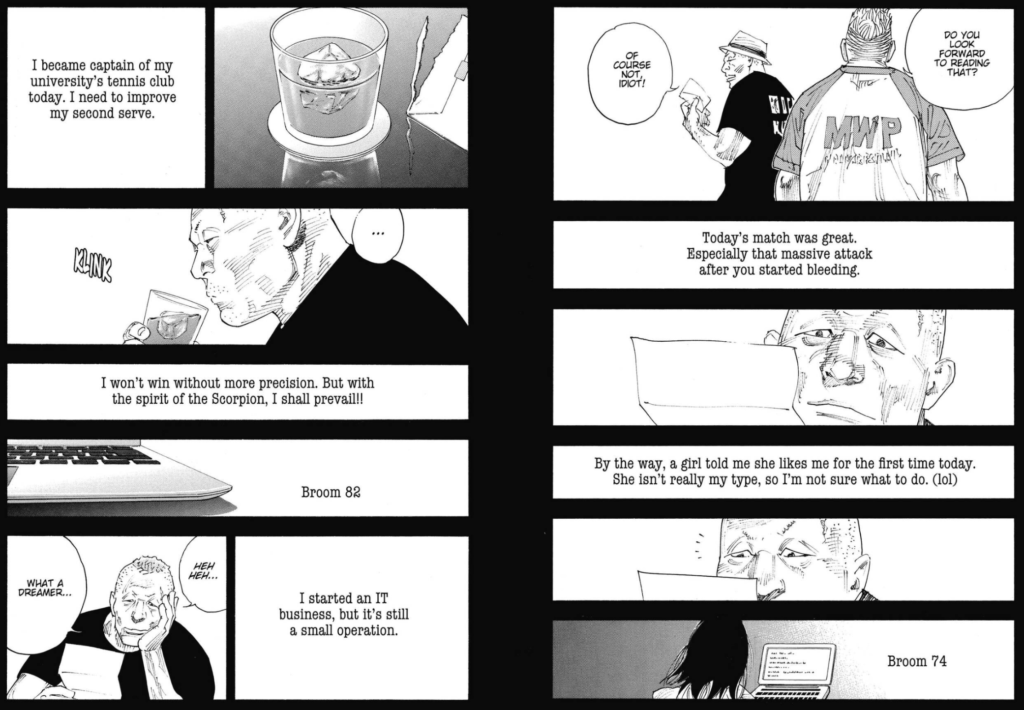
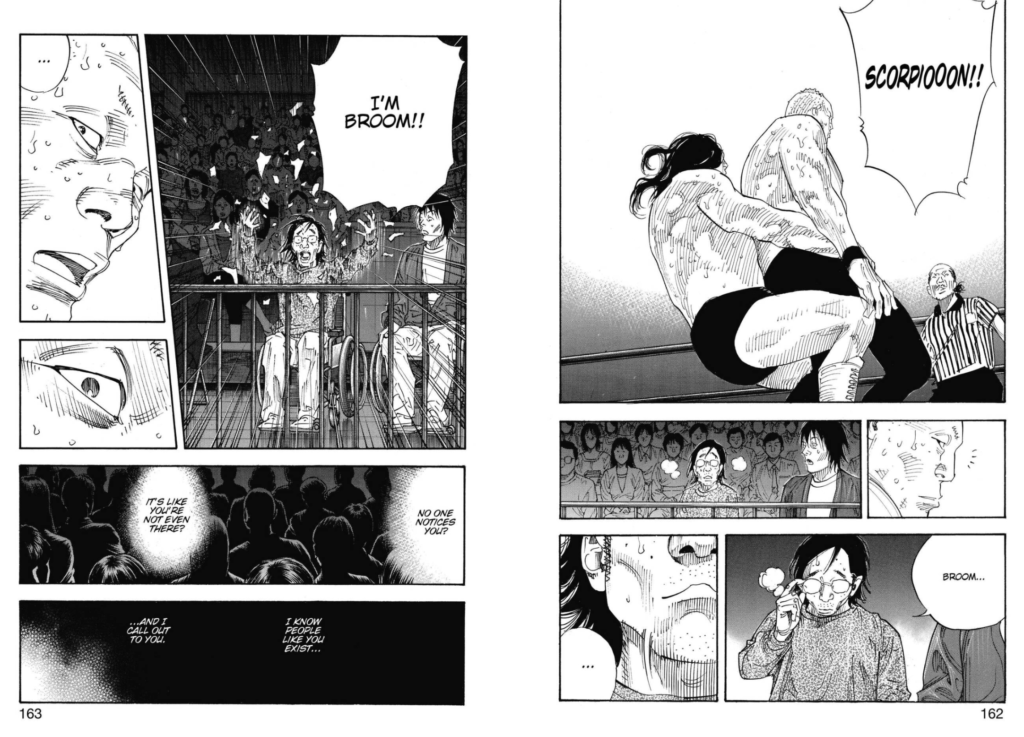
26:20 [Christopher] Here’s that illustration from page 177, that Chip mentioned as his favourite from this sequence, crying and taking off glasses. It actually happens just a few pages after the sequence above.
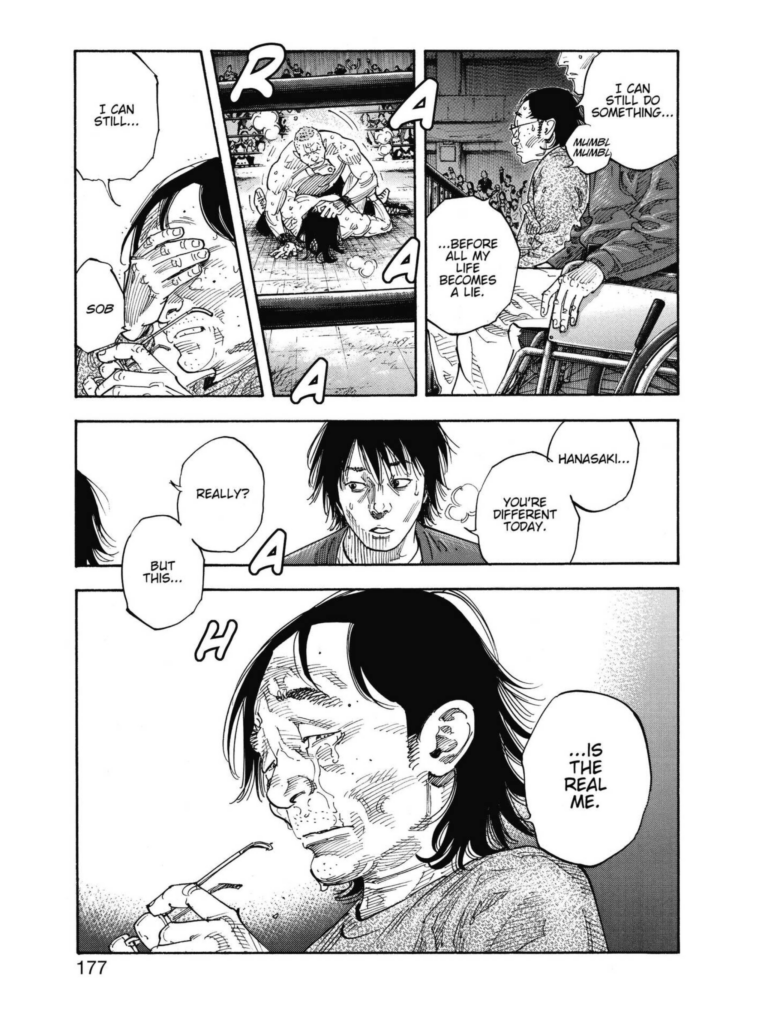
26:28 That cute sketch between chapters sketch on page 131? Well, that’s not the right page number, apparently. However, I did find this one on page 102…
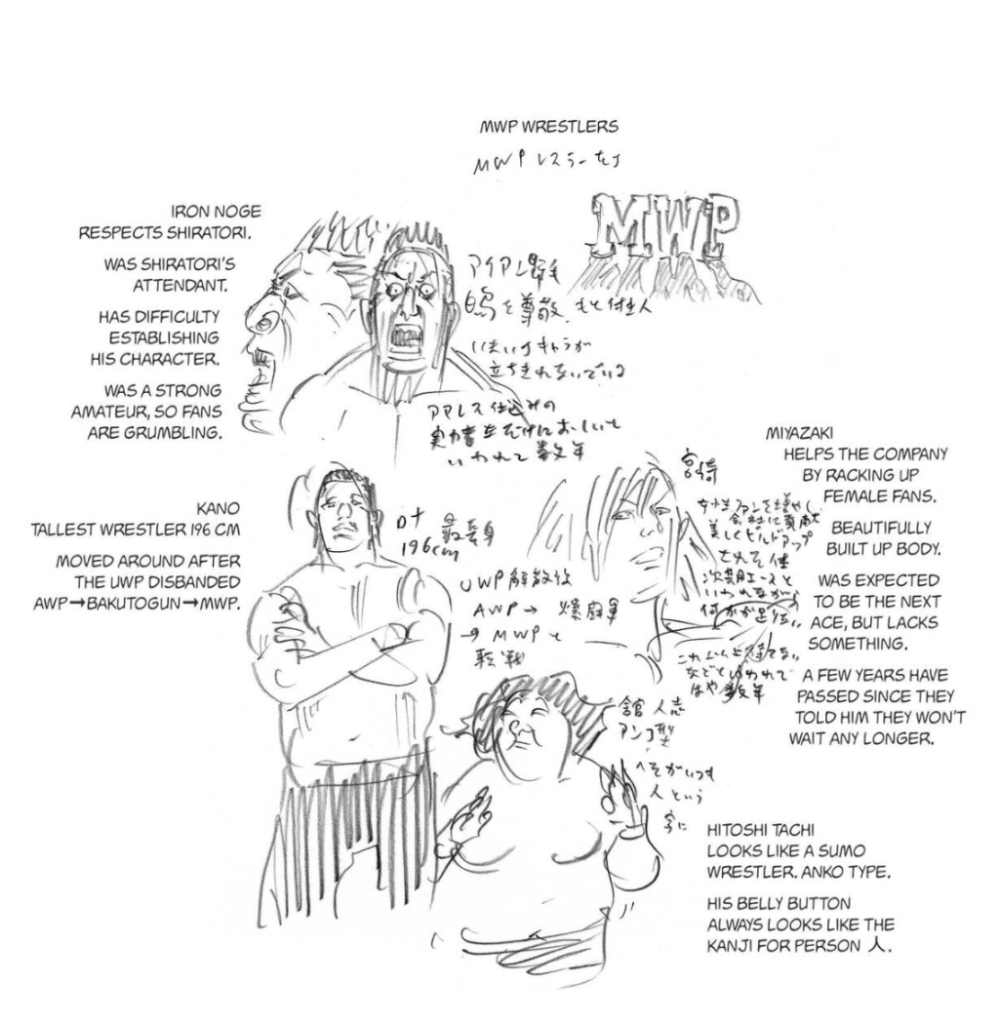
28:55 The other sports manga that we introduced Chip to (that he loved!) was Cross Game by Mitsuru Adachi. If you missed Episode 66, go give it a listen!
30:00 The headbutts and the embrace at the end of the match…
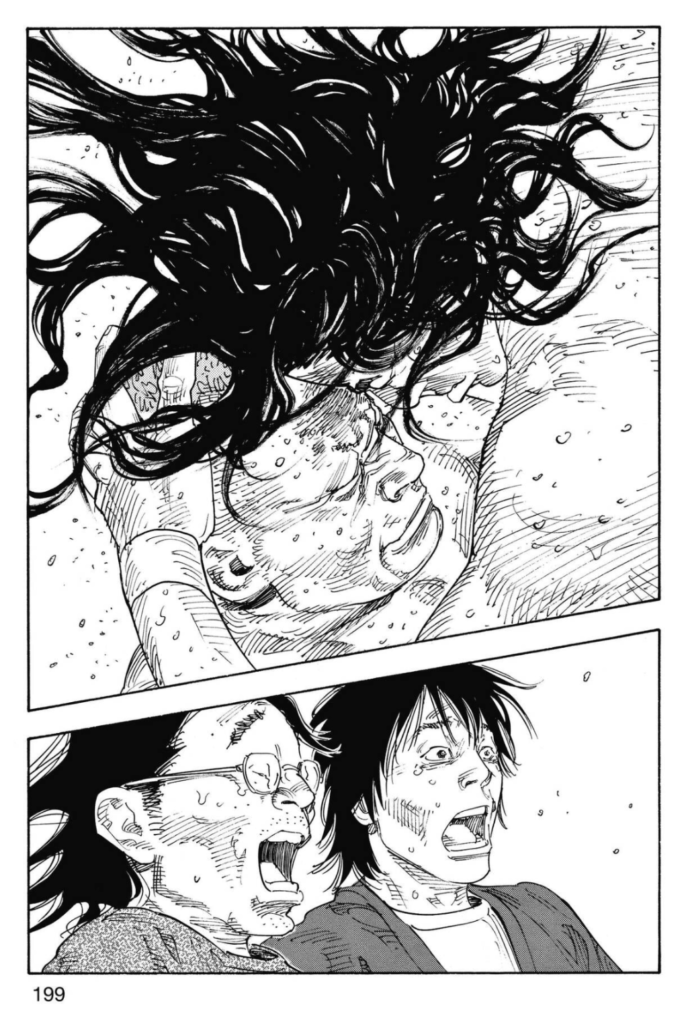
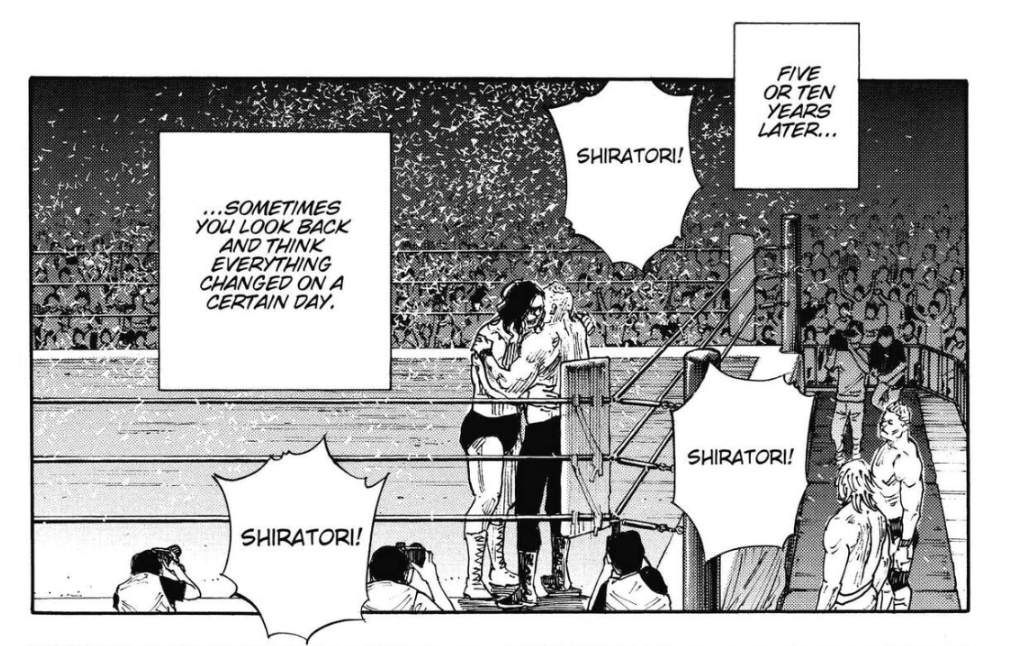
33:54 Keiji Muto, a.k.a. “The Great Buddha that David mentions, and his final match with his old rival has a whoooole Wikipedia article about the event! Here’s a clip from this momentous bout:
34:50 “Pro wrestling is awesome!”
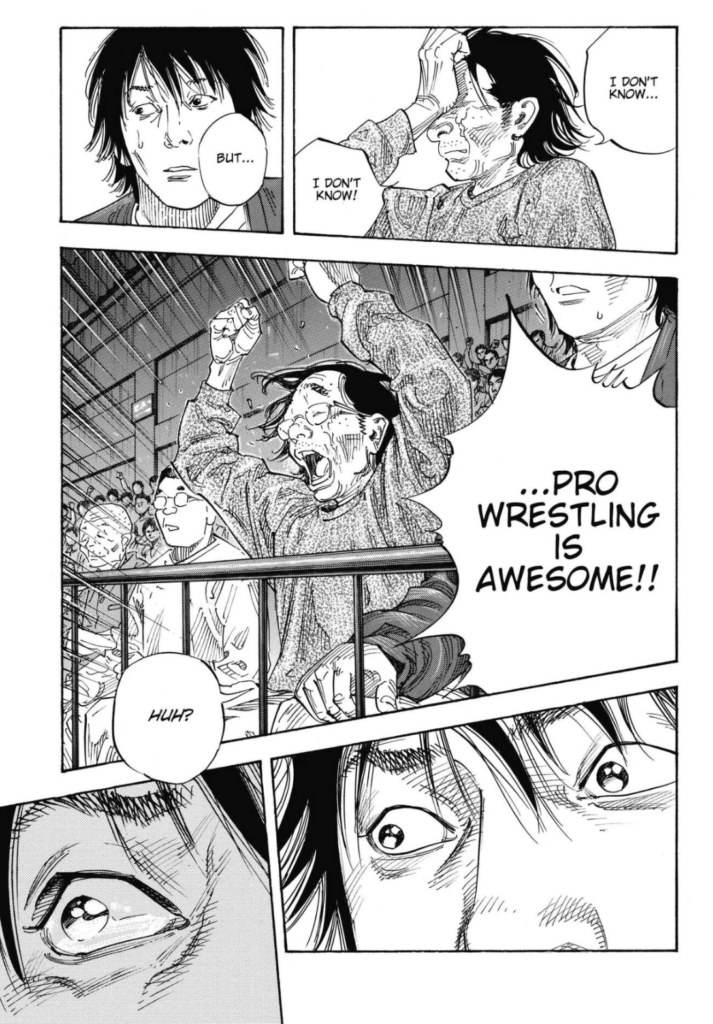
35:00 [Christopher] David mentioned that he just watched this AEW match the night before recording, and provided this link to go check out the matches he was talking about.
36:15 The Takehiko Inoue US press event happened in 2007, when Christopher and I interviewed Takehiko Inoue at the Kinokuniya Store near NYC’s Bryant Park. My write-up was for About.com, but most of the content that I wrote for that site is gone now. I may try to resurrect it sometime, but in the meantime, Christopher has his interview that he’ll hopefully share on MSX soon. (more on that below)
[Christopher] Good news, it’s online now! Go check it out.
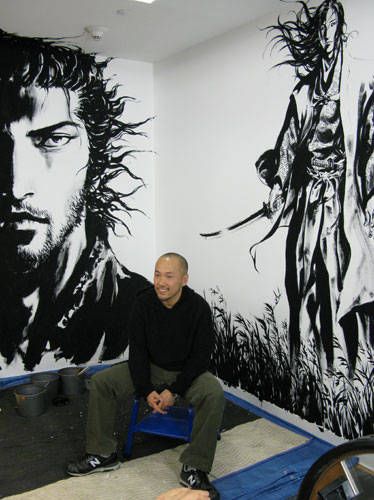
38:03 And we end our Real chat with the Scorpion’s surprise weapon: Poison mist!
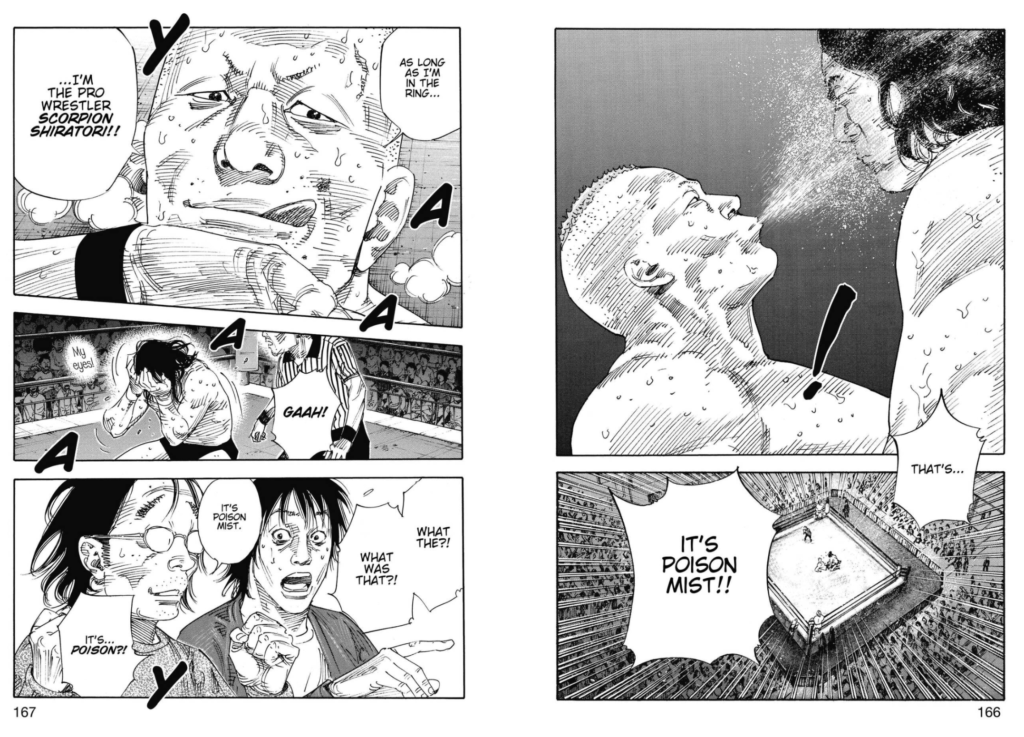
38:40 THE BREAK
40:00 SHOUT OUTS!
DAVID shouts out Smokey and the Bandit. And is it horny? Yes, it is. 😉
DEB shouts out Skip and Loafer by Misaki Takamatsu both the manga, from Seven Seas Entertainment, and the anime series, which is now streaming on Crunchyroll. Here’s the trailer, so you can get a taste of this charming slice-of-life series about a go-getter gal from the country who moves to Tokyo and makes a big impression on her big city classmates:
CHRISTOPHER promises to post the interview with Takehiko Inoue that he did in 2007 at Kinokuniya that we talked about earlier! It’s up on Mangasplaining Extra now! Go give it a look and maybe subscribe while you’re there?
CHIP shouts out Blackberry, the movie that he wants to see about the creation of the Blackberry mobile device.
Also, Christopher mentions something like a “Maple Limit” or something like that? I don’t know. But this regulation from the Canadian Government’s Radio-Television and Telecommunications Division explains why I hear a lot of Bonnie Tyler and Bryan Adams on the radio whenever I visit Canada… here’s more on that.
[Christopher] Haha, that was M|A|P|L, and if you’re really curious you can read about it here. Actually here’s music journalist Alan Cross talking about it, which is more interesting.

Incidentally, if someone understands this please feel free to tell us how to get grant money. 😉
DAVID adds two more shout-outs, this time for Do A Powerbomb by Daniel Warren Johnson from Image Comics, and the Spanish edition of boxing manga, Ashita no Joe, Joe Del Mañana, published by Arechi Manga.
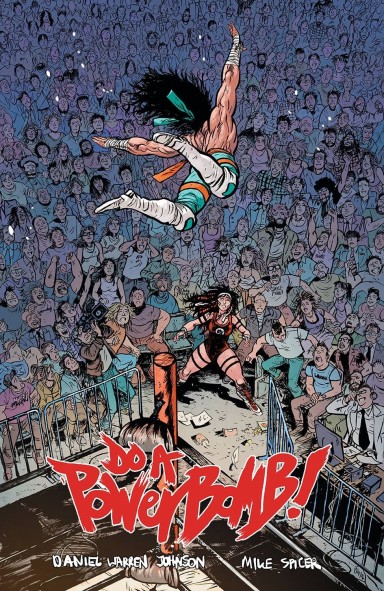
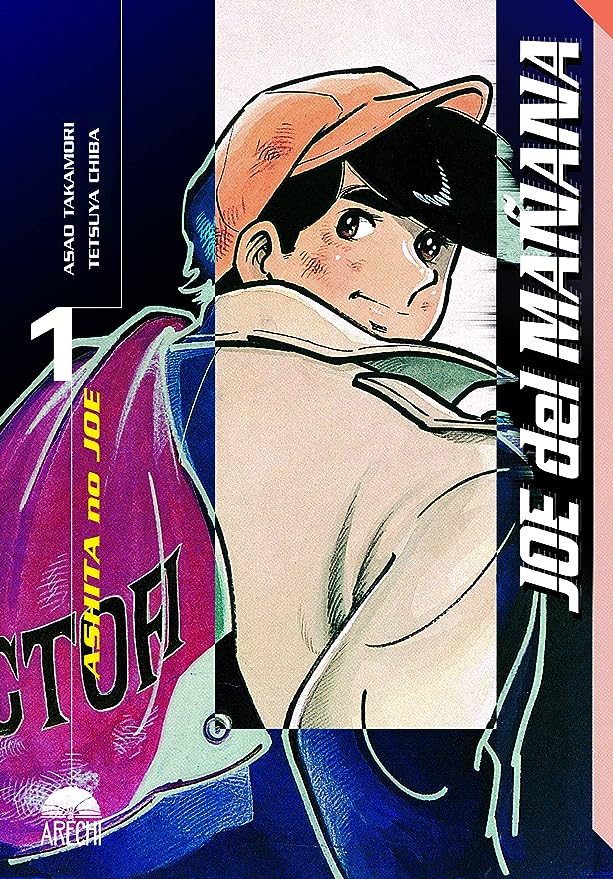
50:30: The second Break! Except it’s not a break we kinda just went right into it in a nearly invisible transition.
51:00 THE (NOT-SO) SECRET ORIGINS OF MANGASPLAINING!
Yep, the seeds of Mangasplaining were planted when Christopher, David, Chip, and friend of the podcast Nick Dragotta and I went to Japan in November 2019. We had a *very* good time, eating lots of good food, soaking in an onsen or two and getting immersed in the magnificent world of manga (among other things), completely unaware that after March 2020, we’d not be able to return to Japan for several years. But hey, that pandemic dealio gave us an excuse to start a podcast and start publishing manga, so maybe it wasn’t a totally awful thing? (Okay, it’s been mostly awful. But this was an unexpectedly nice thing that happened along the way.)
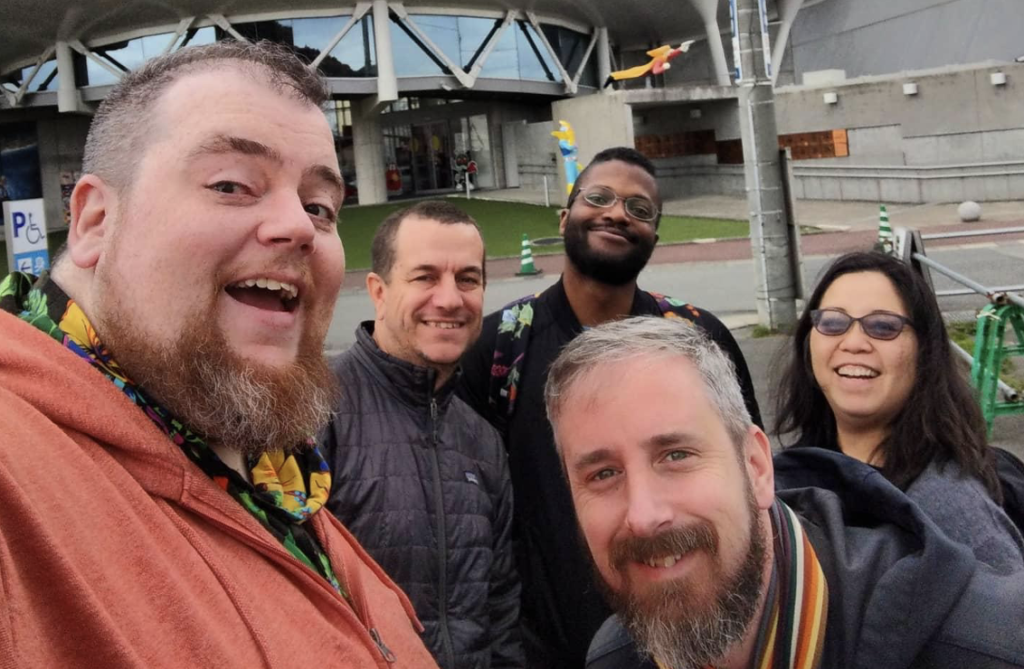
[Christopher] Here’s a photo from us on the train between Hakodate and Sapporo.
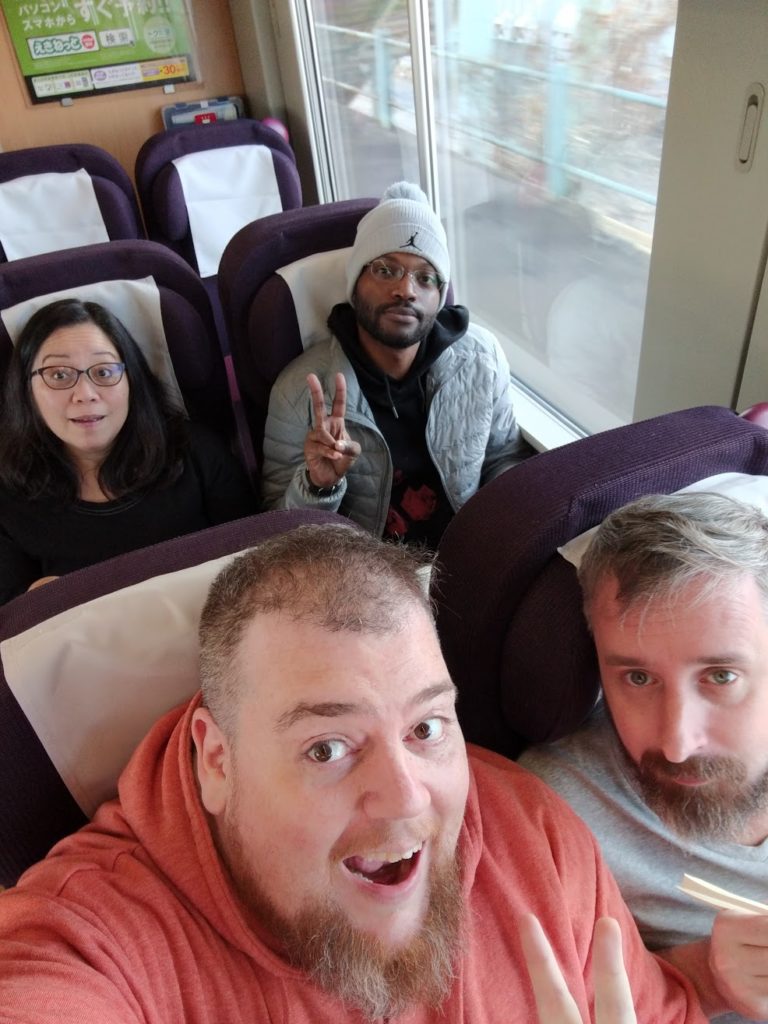
So I made them visit not one but TWO museums about a bug man on a motorcycle? Yep, pretty much! We’re talking about our 2019 visit to the Shotaro Ishinomori Mangattan in Ishinomaki and the Shotaro Ishinomori Furusato Museum in Tome, both in Miyagi Prefecture. We talked about the Kamen Rider manga in episode 47 too!
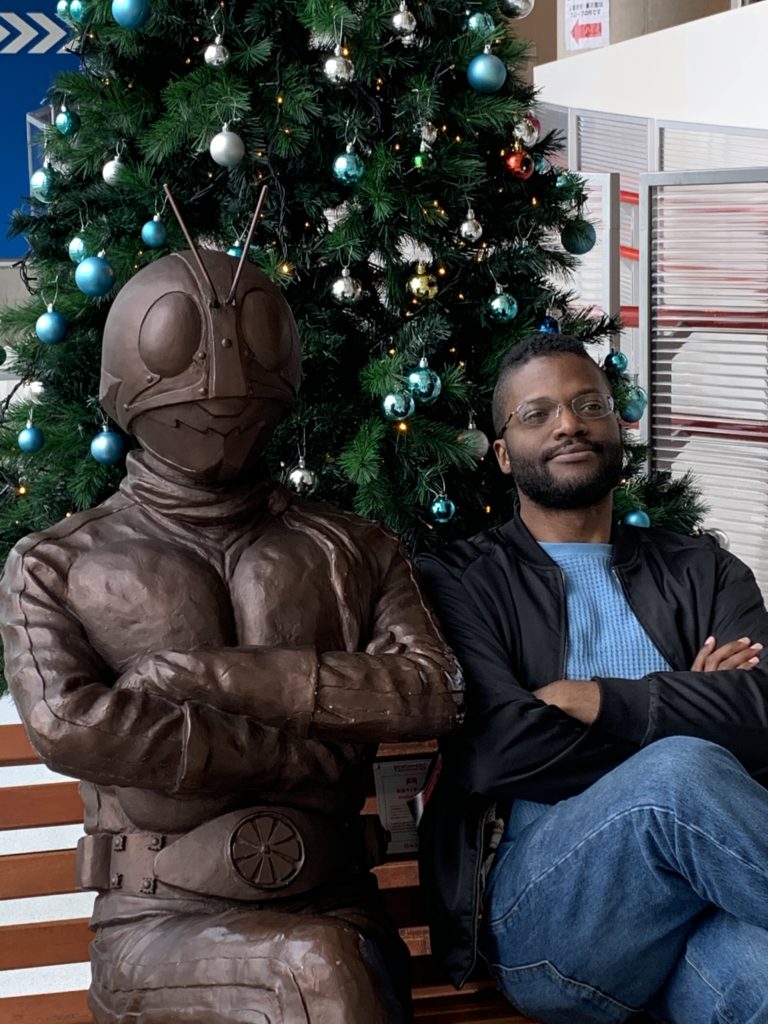
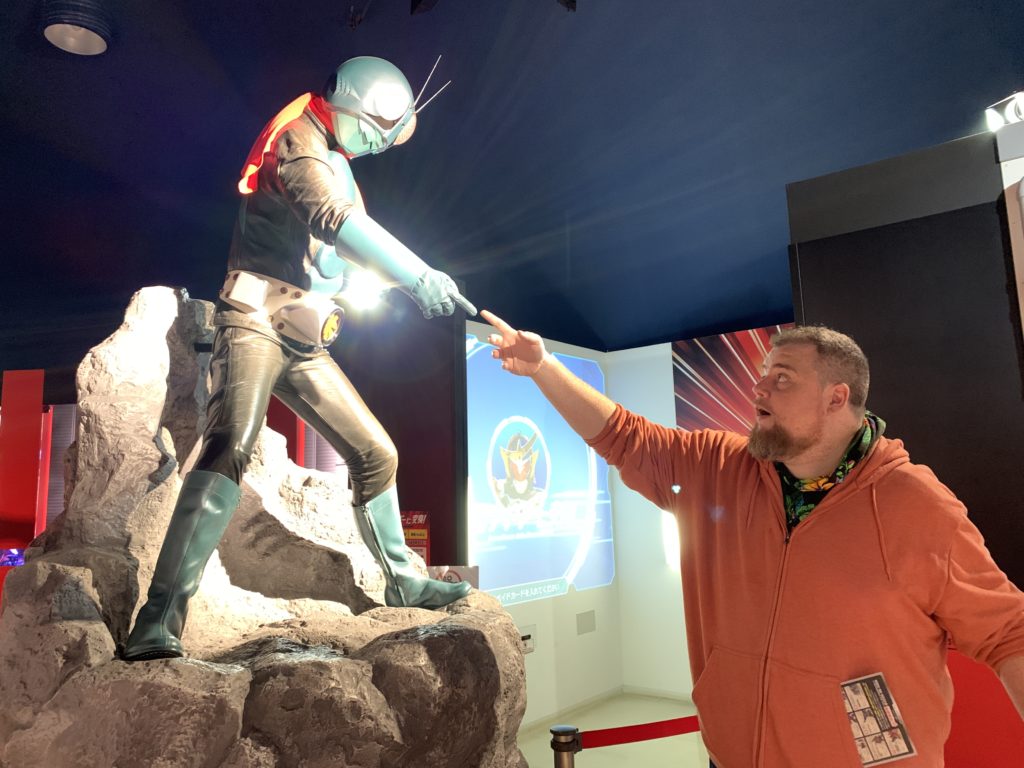
So that Fist of the North Star ebook reader that David bought is a special e-reader device called an eOne Book that has the entire Fist of the North Star series loaded up on one “book-like’ device. This same device also offers soccer manga Captain Tsubasa in English too, if you’re curious. Here’s a review of the device from DaiyaManga that has a bunch of photos.
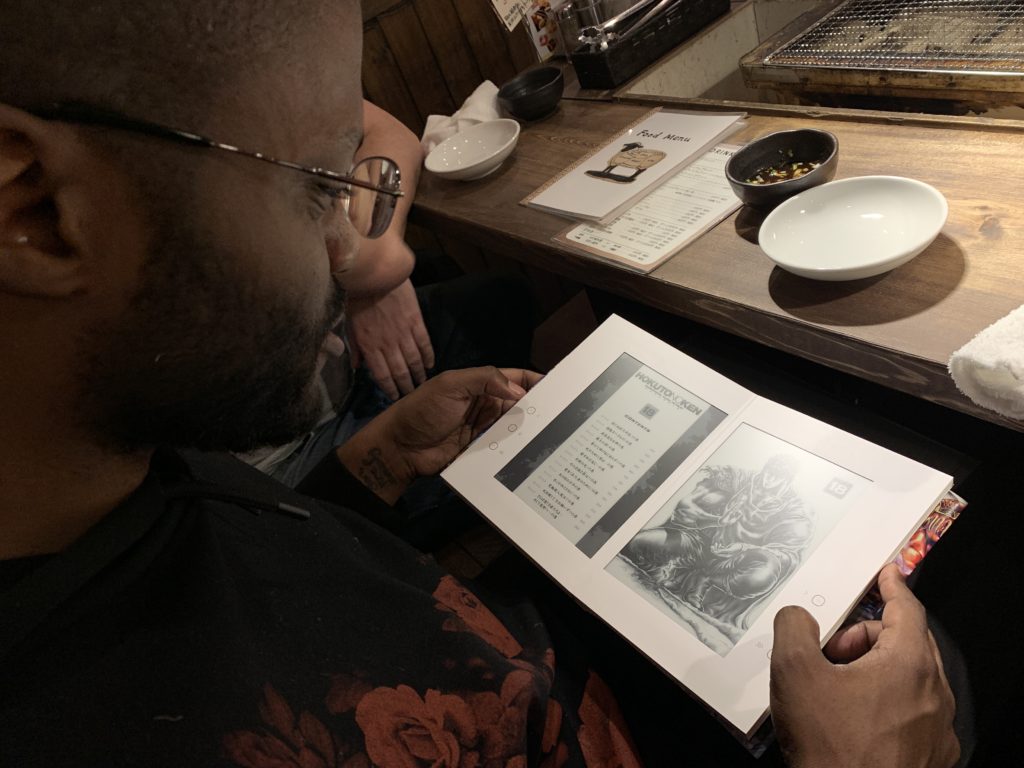
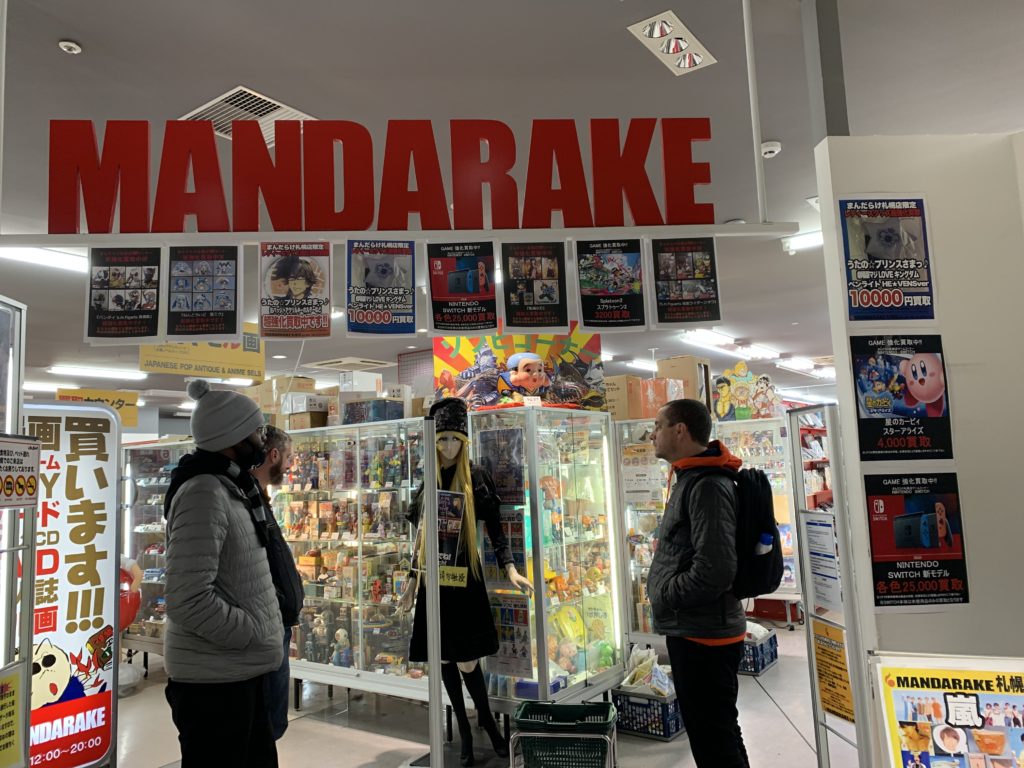
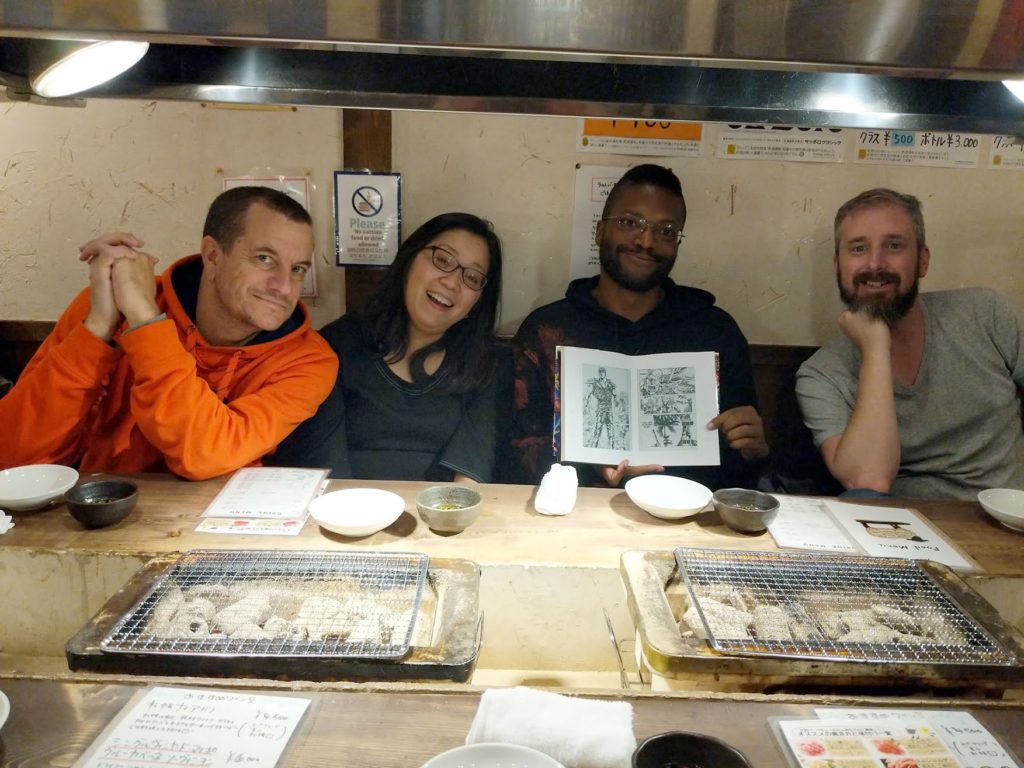
When David bought this, Fist of the North Star was not yet licensed in English – but just a few months later, VIZ Media picked it up, and has been releasing them in very nice hardcover editions. It’s on my short list of books to recommend to Chip, but we’ll see when we can get around to it, huh?
Also, while there are NUMEROUS museums devoted to manga and manga creators in Japan, in the US, there’s really only the Charles Schulz Museum in Santa Rosa, CA, the Eric Carle Museum in Amherst, MA. Is there a Jack Kirby Museum? Not exactly, but they’re trying to make one in the Lower East Side of NYC, where the king of comics grew up… There’s also the San Diego Comic-Con Museum in Southern California, and the Cartoon Art Museum in San Francisco, CA too.
[Christopher] Episode 0 really is our ‘first’ episode. I haven’t listened to it in years, I hope it’s alright? Anyway you can go listen to it here.
[Deb] Here’s more on the Korean birthday thing I mentioned, and the move to change it that has people up in arms.
Also, if you want to hear the episodes where I get irritated because I’m not quite getting what’s going on, go check out our Dai Dark and Franken Fran episodes. They’re actually fun conversations about some quirky manga.
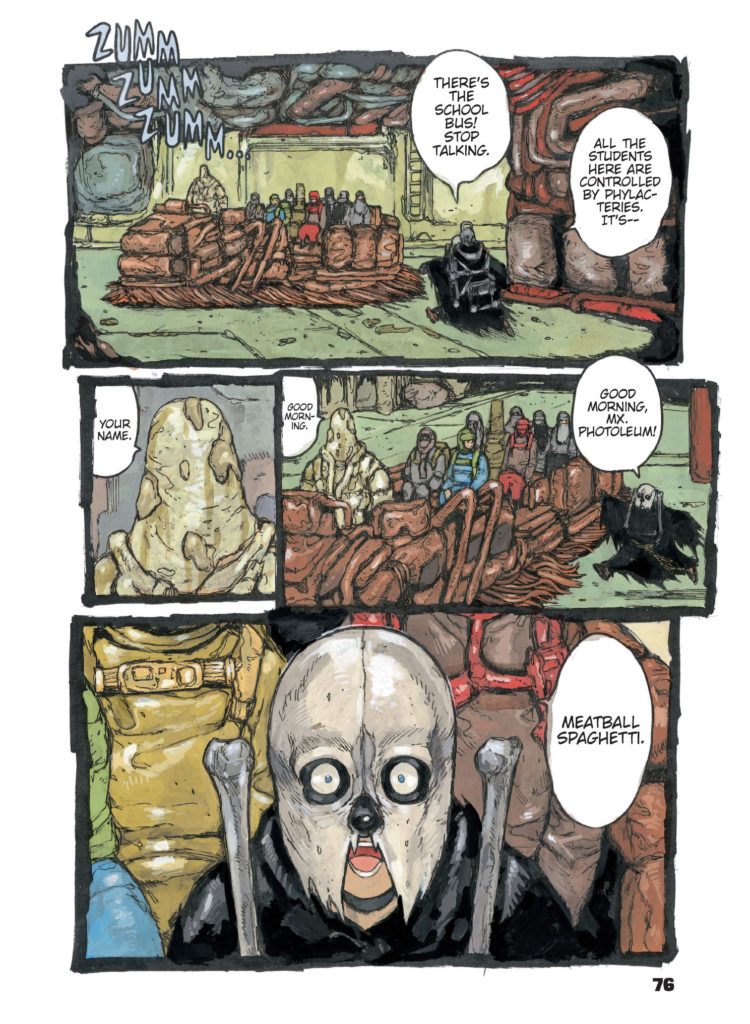
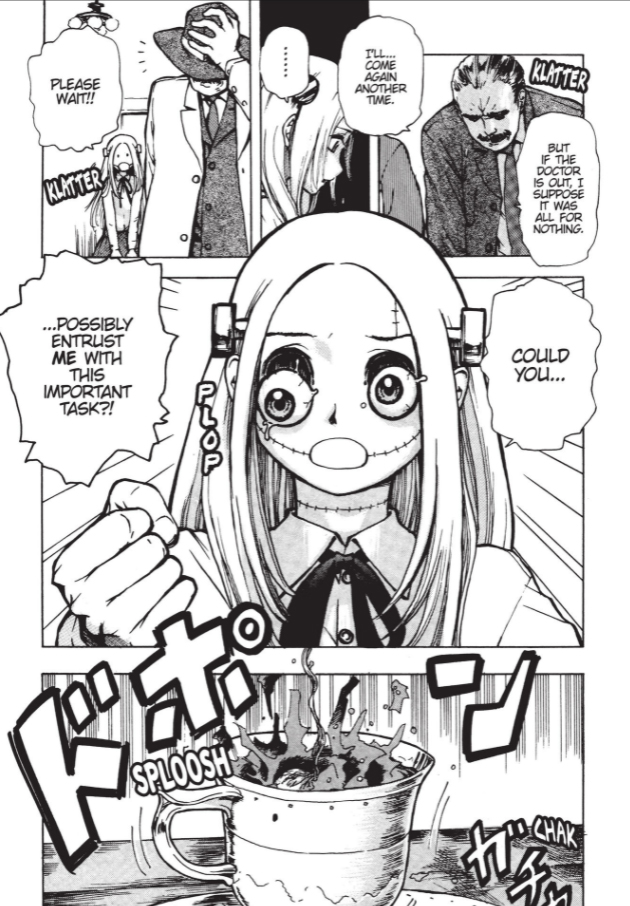
Also, Chip’s short list of go-to manga recommendations for people who are new to manga include:
Ep. 40 – Vinland Saga Vol. 1 by Makoto Yukimura (Kodansha)
Ep. 33 – Tokyo Tarareba Girls Vol 1-3 by Akiko Higashimura (Kodansha)
Ep. 8 – The Way of the Househusband Vol. 1
Ep. 99 – Pluto vol.1 by Naoki Urasawa (VIZ Media)
Dick Fight Island is NOT about Dick Grayson, but that shouldn’t stop you from listening to that episode anyway!
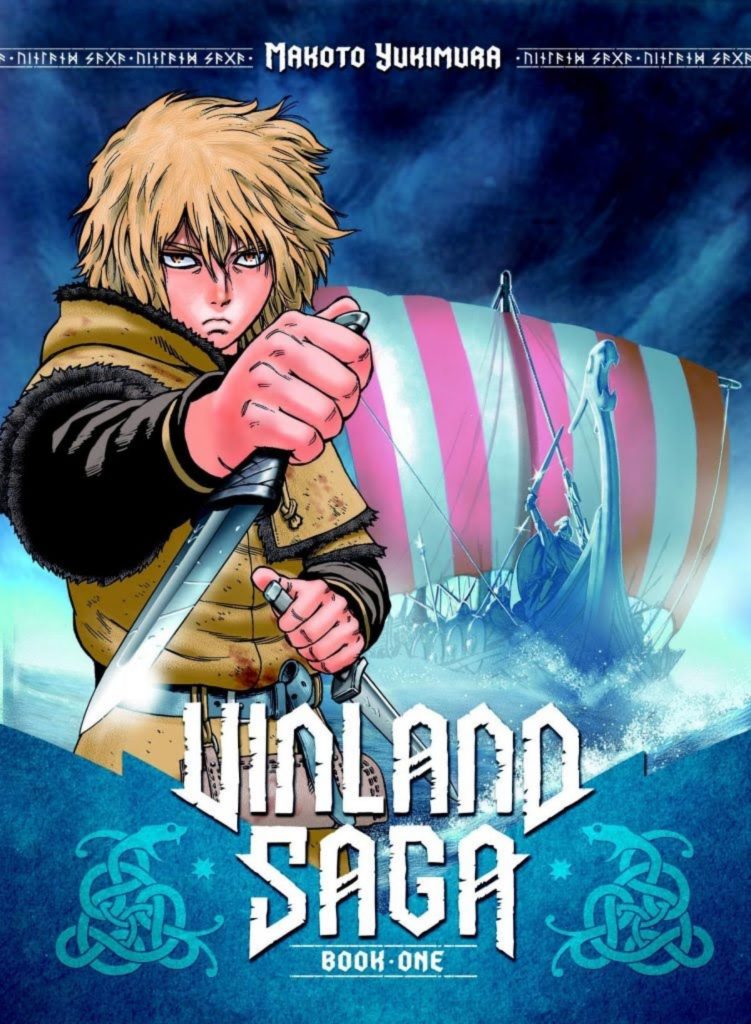

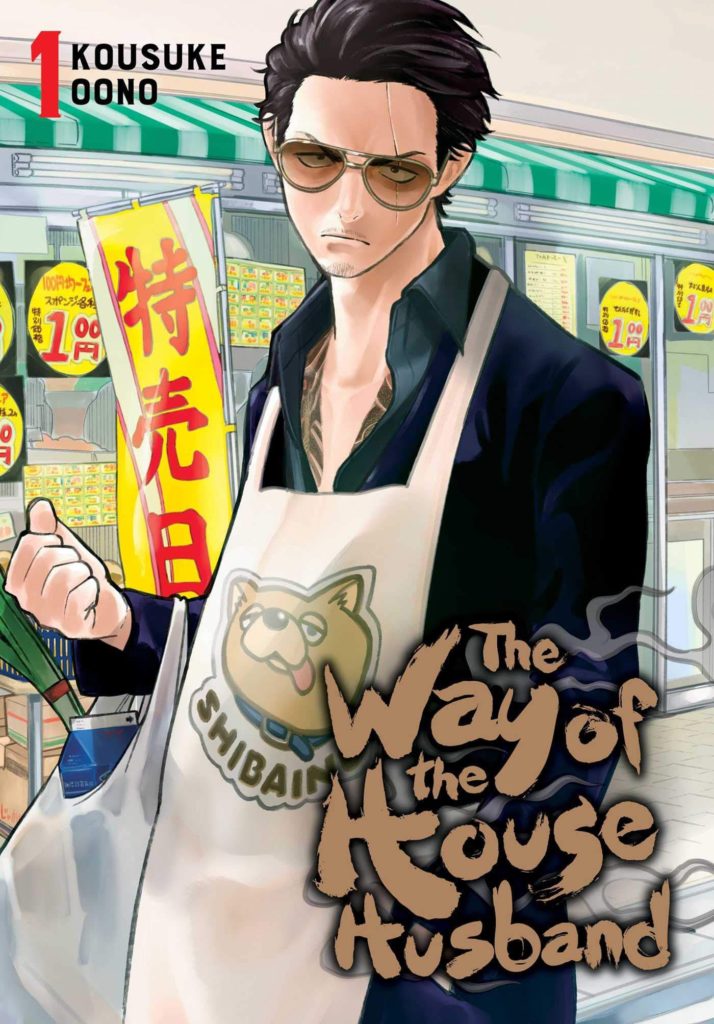
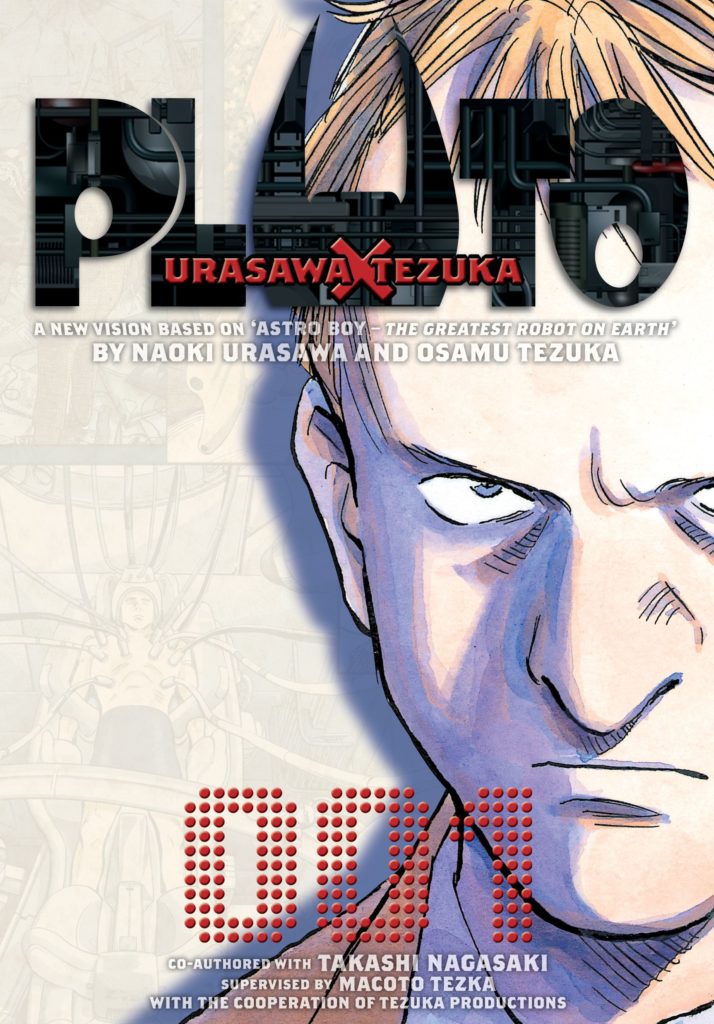
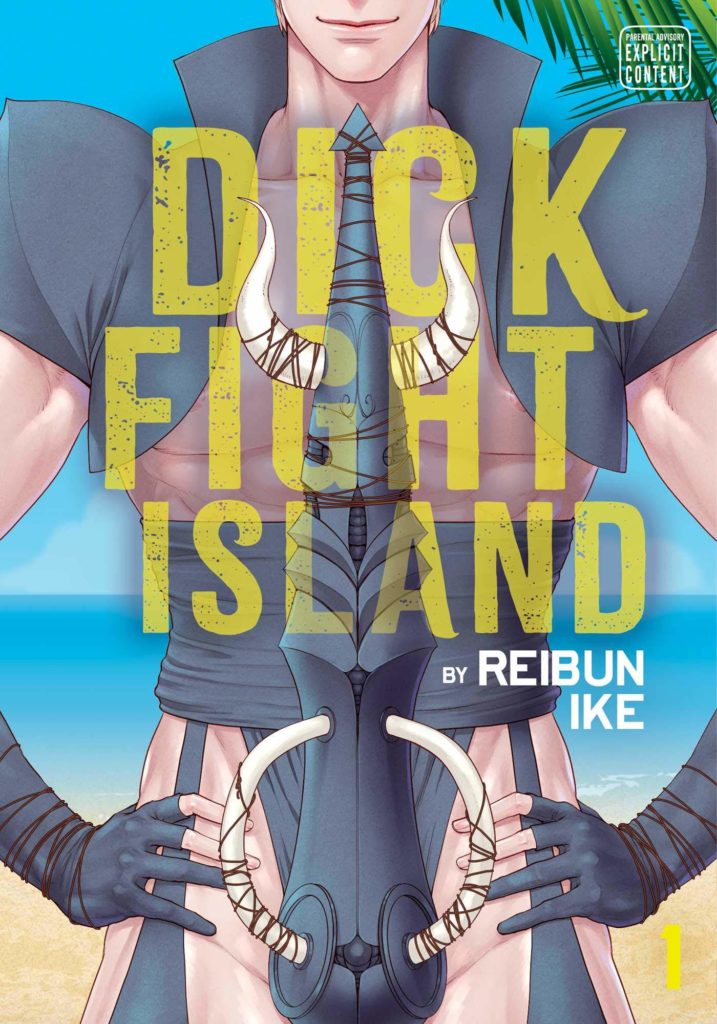
Anyway, thanks for a great 100 episodes of Mangasplaining! We could not have done it without your support! We’re not stopping yet — so stick around for our next episode, which will be Not All Girls Are Stupid by Minami Q-ta, from Starfruit Books.
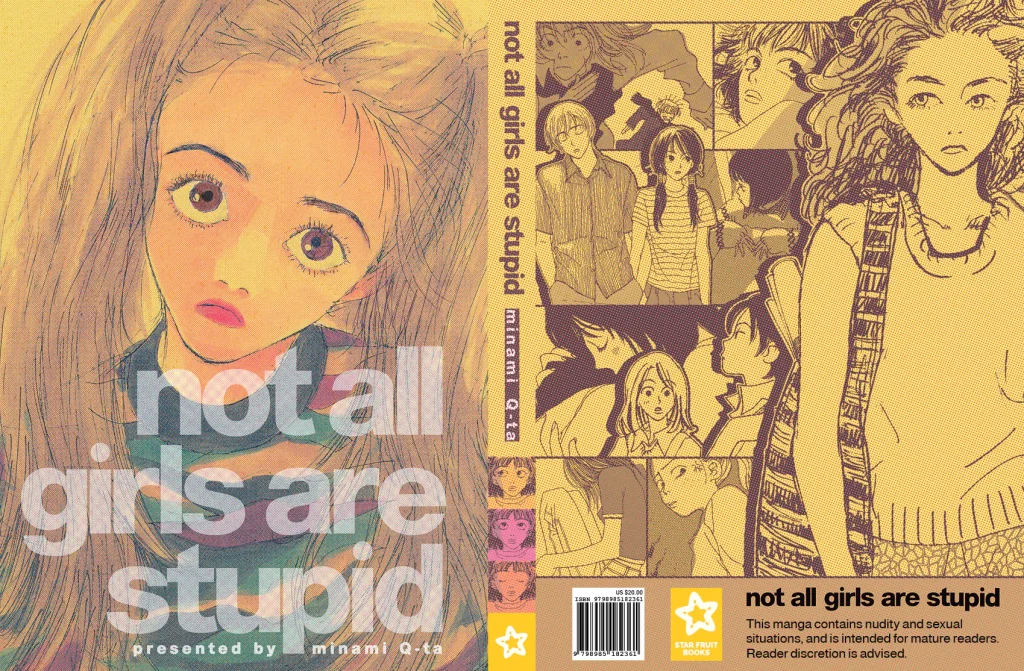
And that’s this week in Mangasplaining! This episode is also available wherever you get your podcasts, so please subscribe and leave a review, so others can discover our show. Also, if you’d like to get the latest episode delivered straight to your inbox along with exclusive interviews, articles and new chapters of manga you can’t read anywhere else like Search and Destroy by Atsushi Kaneko and Wandering Cat’s Cage by Akane Torikai, subscribe to our Substack newsletter. See what you’re missing at Mangasplaining Extra!
Thanks so much for listening! Please support your local comic and manga specialty shop when purchasing these books, and you can find one near you at comicshoplocator.com. You can also check your local library for print and digital lending options, they have TONS of manga! Finally, thanks to D.A.D.S. for their musical accompaniment for this episode.
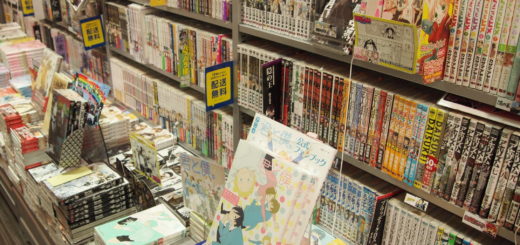
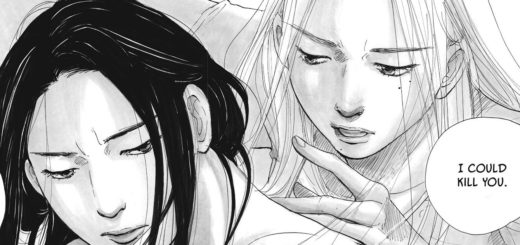
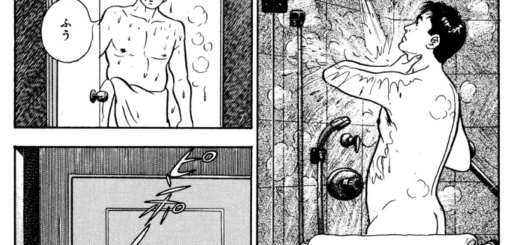
Fantastic episode! The hiatuses on Real caused be to drop off, too, but listening to this episode made me want to go pick up where I left off!
I had always thought Real was Inoue’s stress break from working on Vagabond, since the latter started earlier and came out more frequently. It seemed like the two were on a reliable alternating schedule for awhile: for every 3-4 volumes of Vagabond we got 1 volume of Real. I need to check out the interview links you posted. I’ve always been curious why he did two manga series in tandem. Interesting that Real is the one he stuck with.